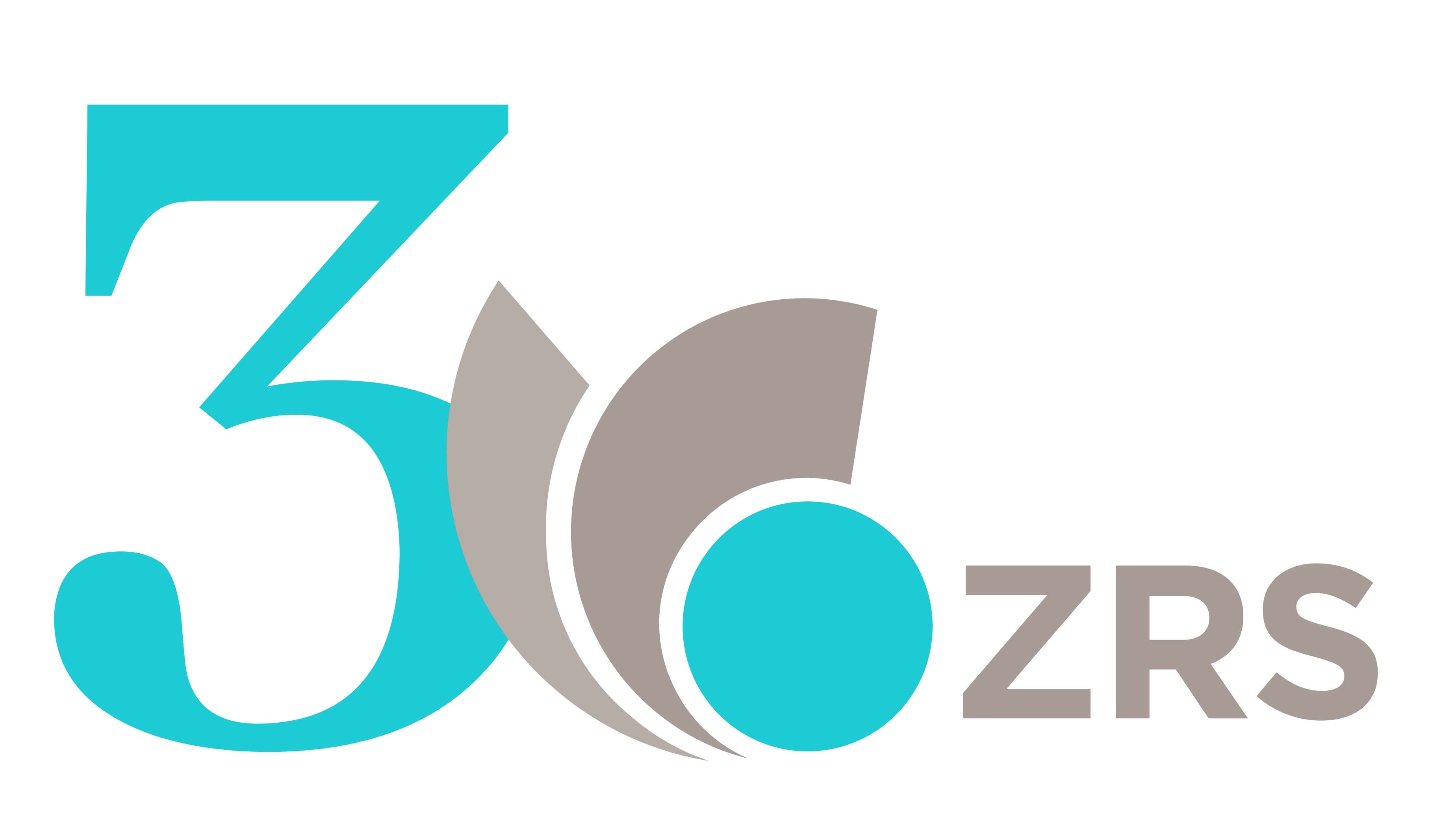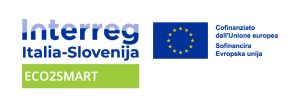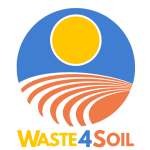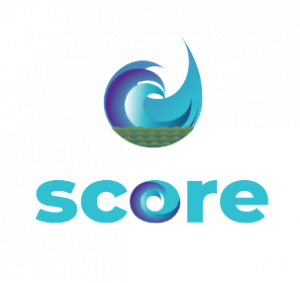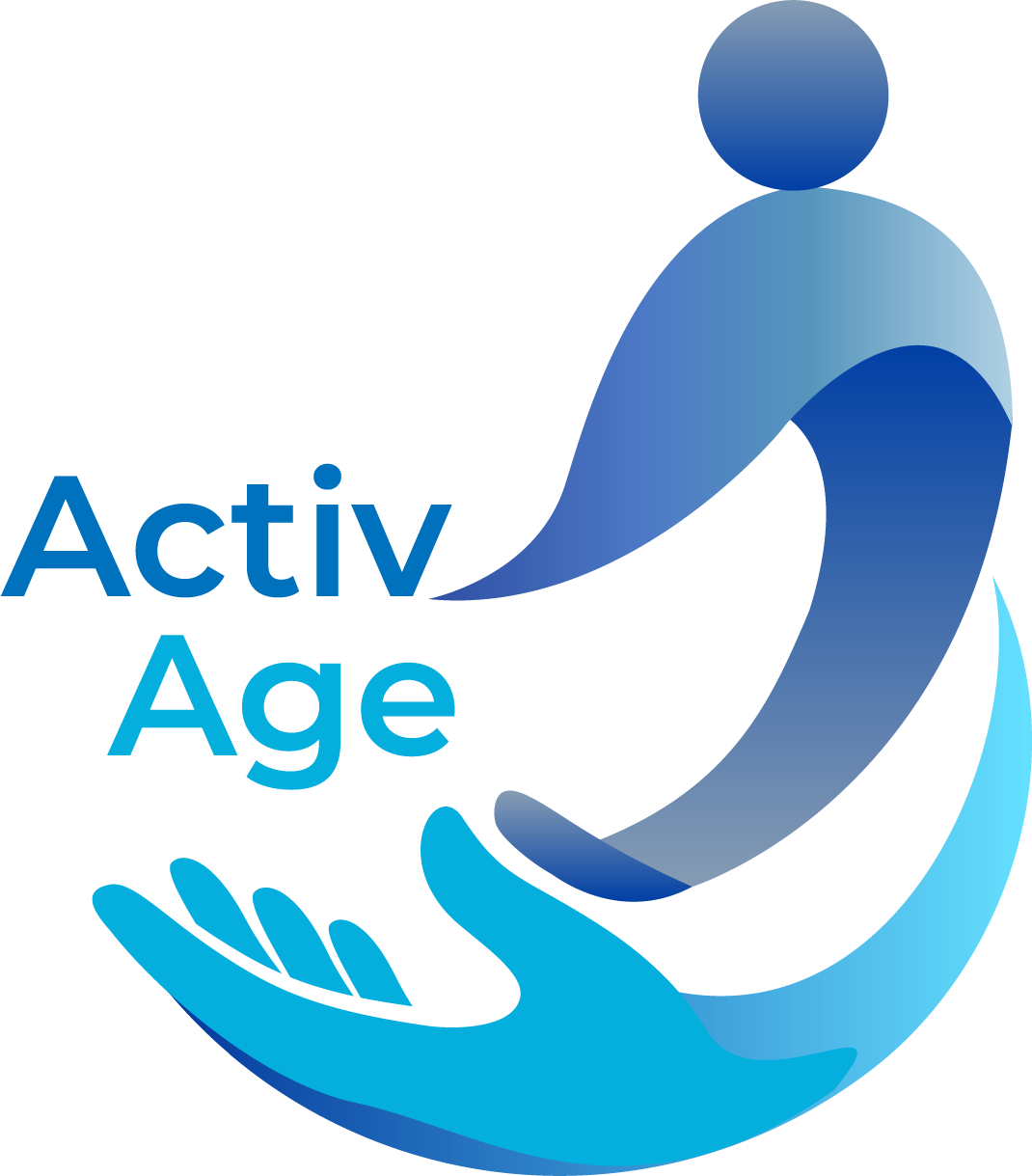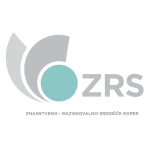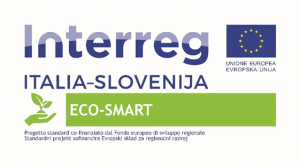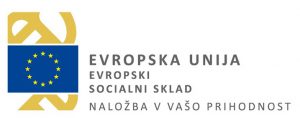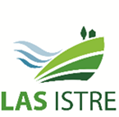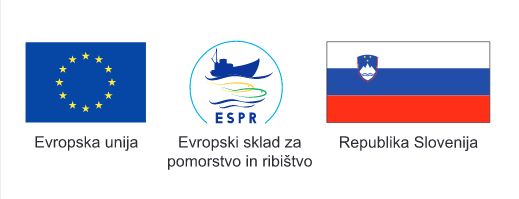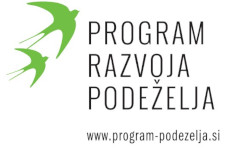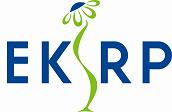INTERNATIONAL RESEARCH PROJECTS
ZRS Koper regularly participates in international research projects of various types. Long-term international co-operations with a range of institutions and researchers reflect a wide partnership network.
ONGOING PROJECTS
EXPECT_Art
EXPECT_Art – Exploring and Educating Cultural Litercy Throught Art
European Commission: HORIZON-CL2-2023-HERITAGE-01
Contract no.: 101132662
Project duration: 1.1.2024-31.12.2026
Project holder at SRC Koper: dr. Maja Zadel
Participating institute ZRS Koper: Institute for Social Studies
Partner organisations:
- Syddansk Universitet, Denmark (lead partner)
- Science and research centre Koper, Slovenia
- Universitat De Barcelona, Spain
- Rheinland-Pfalzische Technische Universitat, Germany
- Tarsadalomtudomanyi Kutatokozpont – Centre For Social Sciences, Hungary
- Kulturprinsen Udviklingscenter Forborne – Og Ungekultur, Denmark
- Drustvo Za Razvoj Kreativnosti In Potencialov Portret, Socialno Podjetje, Slovenia
- Experimentem Amb L‘Art, Spain
- Kinemathek Karlsruhe E. V., Germany
- Uniwersytet Wroclawski, Poland
- Insite Drama Oktatasi, Kulturalis Es Szolgaltato Nonprofit Korlatolt Felelossegu Tarsasag, Hungary
The aim of EXPECT_art is to identify current barriers and potentials for promoting critical cultural literacy by means of arts education, education through arts and uses of arts in education within and across different educational contexts in Europe, to generate and activate knowledge on how to enhance critical cultural literacy and understanding among European citizens.
ECO2SMART
ECO2SMART – Promoting active citizen awareness to strengthen resilience, ecosystem-based adaptation and risk prevention of disasters
Interreg VI-A Italia-Slovenia 2014-2020, Capitalization project
Project duration: 01.09.2023 – 31.08.2025
Project leader on behalf of the SRC Koper: Liliana Vižintin, PhD
Participating institute of the SRC Koper: Mediterranean Institute for Environmental Studies
Project partners:
- Mestna občina Koper (vodilni partner)
- ZRS Koper;
- Municipality of Monfalcone;
- University of Padova;
- Shoreline Soc Coop;
- Consorzion di Bonifica Veneto Orientale
The ECO2SMART project promotes active awareness of citizens to strengthen ecosystem-based climate change adaptation and disaster risk prevention. Through this boosting the resilience of the coastal areas involved in the project. It is intended to achieve this with the capitalization of ECOSMART which includes: 1) strengthening impact and consolidating outputs, 2) transferability/reuse of outputs, 3) providing better visibility with stakeholder awareness, training and participation. PP and PA of Slovenia, FVG and the Veneto Region are included in ECO2SMART, thus ensuring the relevance of the initiative for the program area. ECO2SMART includes 3 PPs, who participated in ECO-SMART, that will be in the role of GIVER and will make the effects of this project available to 3 new PP in the role of TAKER who would like to empower, reuse and enhance these effects. The PAs participating in ECO2SMART will also ensure the reuse of the effects of ECO-SMART in the role of TAKER.
POSEIDONE
POSEIDONE – Promotion of green and blue infrastructure for new environmental development
Interreg VI-A Italy-Slovenia
The POSEIDONE project is aimed at the functional area of the northern Adriatic Sea, from the city of Chioggia (Italy) to the Slovenian coast. The general goal of the project is the promotion of local development by favoring the protection of nature and biodiversity, the development of green and blue infrastructures in Natura 2000 sites, the reduction of tourist pressure on natural parks or natural areas, the improvement of the landscape by the promotion of biodiversity in agriculture, the protection of native species and the dissemination of knowledge.
A greener and CO2-free Europe is the policy objective underlying the project, which takes into account the fight against climate change through the protection and implementation of biodiversity and green and blue infrastructures.
The challenges the project aims to address are concerning about:
- partnership’s joint actions implementation in order to mitigate the climate change in themanagement sector of protected and unspoiled natural environment areas;
- biodiversity’s and green and blue infrastructures improvement’s implementation for reducing airpollution and CO2 emissions;
- protection of biodiversity in order to encourage the diversity of landscapes, includingagricultural ones.
In addition, a better waste management governance will be developed through awareness and cleaning campaigns on both sides of the border. The cooperation between territories involved in the project is a meeting and discussion opportunity about common issues. Innovation in the workflow will be supported in order to obtain common solutions about institutional technic capacity strengthening and the transfer of knowledge with the aim of finding a management strategy of natural and protected areas that are sustainable and innovative.
The main outputs that the project wants to obtain are:
- joint cross-border actions: high training days on the Goletta Verde boat along the Northern Adriatic Sea coast (area of project) about new technologies for offshore monitoring and in addition data collection for WP1 related monitoring activities; set up of a shared calendar between the Italian and Slovenian partners on the main actions of outreach and cleaning of the sea, the coast, rivers and natural areas with the involvement of local populations (D.2.1.2 & D.2.1.3) (RCO81);
- drawing up a cross-border strategy for the identification and creation of new protected areas, with the aim of developing a cross-border vision (methods and criteria) in order to identify measures that stop, slow down or reverse the loss of biodiversity and, at the same time, n order to mitigate the impacts generated by climate change with the aim of increasing the protection of high value habitatsand species populations (D 1.4) (RCO83);
- set up of experimental pilot actions of floating platforms for stopping seabirds, restoration activities across flat islands and conservation of native plant varieties (D.2.3.4, D.3.3.1) (RCO84). The project will contribute to the sustainable development of the territory on a macro-regional crossborder scale, promoting the defense of biodiversity in natural and protected areas.
The main results of the project will be the improvement of biodiversity along the Northern Adriatic Sea coast. This will be possible through:
- the implementation and protection of green and blue infrastructure
- the implementation of tools for sustainable tourism planning;
- the promotion and enhancement of the territories
- the protection of the natural and agricultural landscape.
The partners’ cross-border cooperation approach will be based on mutual collaboration on dealing with the common challenges and on defining the long-term goals, starting from the capitalization of the previous experiences. The effectiveness of cross-border cooperation approach, which enriches the cognitive and experiential path, is linked to:
- the greater effectiveness and stability of the outputs produced by the project,
- the implementation of protected areas and
- the exchange of good practices applied in the various areas involved.
Contract no.: ITA-SI0400091
Project duration: 1. 1. 2023 – 31. 12. 2025 (36 months)
Project partners:
Participating institute ZRS Koper: Institute for Oliveculture and Mediterranean Institute for Environmental Studies
Project leader at ZRS Koper: dr. Liliana Vižintin (Liliana.Vizintin@zrs-kp.si)
Waste4Soil
Waste4Soil – Turning food waste into sustainable soil improvers for better soil health and improved food systems
European Commission: Call: HORIZON-MISS-2022-SOIL-01
Project partners: The 27 partners and 1 associated partner supporting this project proposal are forming a transdisciplinary partnership accross 10 European countries.
Contract no.: 101112708
Project duration: 1. 6. 2023 – 1. 6. 2027
Project leader at ZRS Koper: dr. Maja Podgornik, Research Associate
Participating institute ZRS Koper: Institute for Oliveculture
Waste4Soil envisions the development of 10 technological and methodological solutions for recycling food processing residues from the food industry into local, biobased circular soil improvers for improved soil health. A user-driven standardised Evaluation Framework will support stakeholders from the food value chain, including waste managers, to assess their status towards food processing residues circularity and take action for recycling suitable waste streams into beneficial soil improvers. To ensure coinnovation and collaborative research, Waste4Soil will setup 7 Soil Health Living Labs across Europe, in Greece, Finland, Spain, Poland, Hungary, Italy and Slovenia, to study the valorisation of 8 types of food processing residues (i.e., meat, fish, dairy, cereals, olive oil, beverages (wine), fruits and vegetables, and processed food). The project focuses on assessing and improving the effectiveness of existing routes of food waste management to soil improver components, formulation and application methods by focusing on:
- Anaerobic digestion residues by employing novel nutrient separation including Selective Electrodialysis, bio-electrochemical and membrane systems
- Novel efficient Biochar production from food processing wastes and digestates
- BioPhosphate processing
- Effective composting process of solid residues
- Protein hydrolysates acting as soil improvers and AD-Microalgae combined processes for soil biostimulants and
- An enabling management platform applied in all living labs, with a growing database of data analytics, route optimisation applications, soil health evaluations and application recipe’s, commercial aspects, and the capacity to use IoT devices in logistics.
TESI
TESI – Training and Education in Social Innovation
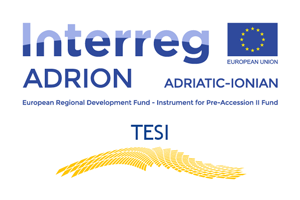 Interreg ADRION Adriatic Ionian region, European regional development fund – Instrument for pre-accession II fund, Axis 1– Innovative and smart region, Topic 2: Support the development of a regional innovation system for the Adriatic-Ionian area
Interreg ADRION Adriatic Ionian region, European regional development fund – Instrument for pre-accession II fund, Axis 1– Innovative and smart region, Topic 2: Support the development of a regional innovation system for the Adriatic-Ionian area
TESI aims at establishing a partnership that will work on the formulation of a Joint Master Programme on Social Innovation (JM). With this aim, the project focuses on two main objectives:
- to raise competences and skills on social innovation through capacity building approaches, with a focus on contemporary social challenges in public administration’s governance, urban regeneration, social entrepreneurship, welfare, migration;
- to establish a network of universities and research centres to define and implement the JM.
The partnership of 6 Universities and 1 research center from 6 Adrion Countries (Italy, Croatia, Greece, Albania, Serbia and Slovenia), with the support of the UNIADRION Network and other 4 associated partners from Italy, Slovenia, Albania and Bosnia and Herzegovina, will cooperate and work together in project’s activities to favour the development, promotion and implementation of the JM. The main outputs of the project will be the creation of an innovative transnational network of Universities, research institutions and business organisations working in the field of social innovation, of a Strategy and an Action Plan for the development of the JM in Social Innovation. Effective communication activities and preparatory measures such as dedicated training of 25 person per country involved, under a tight quality control mechanism, will lead to a sustainable and structured Master Programme.
The Master will award a degree from at least two partner Universities: this will be established during the project implementation taking into account national legislations. The programme envisages funded mobility schemes to partner universities and includes also a training/internship period to allow students writing their thesis in a real-life working or research context.
For that purpose, TESI embraces several business and consortia in the project partnership, with which agreements for hosting students will be established. To achieve this result, activities such as online training courses and a summer school will be organized, together with study visits to further strengthen all PPs’ expertise and mutual knowledge, as well as to promote the future master.
Lead partner: Alma Mater Studiorum – University of Bologna
Partner organisations:
- Znanstveno-raziskovalno središče Koper (Slovenia)
- Department of Special Account for Research Funds – Hellenic Open University (Greece)
- Faculty of Humanities and Social Sciences, University of Zagreb (Croatia)
- University Iuav of Venice (Italy)
- University of Belgrade – Faculty of Philosophy (Serbia)
- University of Tirana (Albania)
Project duration: 1. 2. 2023 –30. 9. 2023
Project holder: Alma Mater Studiorum – University of Bologna, Italy
Project leader at ZRS Koper: mag. Zorana Medarić
Participating institute at ZRS Koper: Institute for Social Studies
OPEN BORDERS
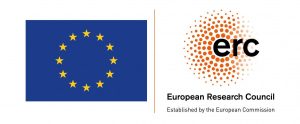 |
 |
OPEN BORDERS – Cold War Europe Beyond Borders. A Transnational History of Cross-Border Practices in the Alps-Adriatic area from World War II to the present
European Commission: ERC Grant
Contract no.: 101054963
This project aims at rethinking the history of Cold War Europe by examining the development of transnational cross-border cooperation between “East” and “West” from the end of World War II to the present. Overcoming traditional visions of a clear-cut European separation symbolized by the Berlin wall, a decentralized analysis of recent European history will show us that the question of a divided continent should be reframed. To do this, the project team will focus on the Alps-Adriatic region, a historical area that today is shared by Austria, Italy, Slovenia and Croatia. In the Cold War it was divided among socialist but non-aligned Yugoslavia, capitalist but neutral Austria, and NATO and EEC member Italy. Its development from the “southern end” of the Iron Curtain in 1946 to the “most open border” in the Cold War and a precursor to the present-day Schengen Europe, represents a paradigmatic case to study an alternative attitude towards borders, frontiers and boundaries in general. While traditional historical research has concentrated on the role of high-level politics and State-to-State relations to explain the divisions of the Cold War, by focusing on the interplay between top-down politics and bottom-up initiatives, the Open Borders project will offer a social history of Cold War Europe from a border perspective. Reconsidering European history from this transnational angle, both in terms of geographical and methodological perspectives, will allow us to rediscover the human face of European integration and will offer us a new platform for contemporary global discussions on sovereignty, territoriality and belonging and on the future role of borders in Europe and in the world.
Project leader: Borut Klabjan, PhD
Project duration: 1. 1. 2023-31. 12. 2027
Participating institute ZRS Koper: Institute for Historical Studies
GUIDEPREP
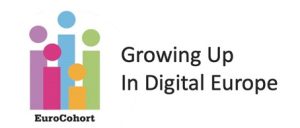 |
GUIDEPREP: Growing Up in Digital Europe Preparation Phase
European Commission: Preparatory phase of new ESFRI research infrastructure projects
Contract no.: 101078945
The Growing Up in Digital Europe Preparatory Phase (GUIDEPREP) project further develops the research infrastructure (RI) necessary to implement the GUIDE birth cohort study. This preparatory work will take place across 2022 to 2025 to ready the RI for the fullscale piloting of the GUIDE in 2026 and the first full wave of data collection in 2027. Once operational, GUIDE will collect data about individual children growing up in Europe until those children are aged 24-years in approximately 2053. GUIDE will be Europe’s first comparative birth cohort study of children’s and young people’s wellbeing. The aim of the GUIDE study is to track children’s personal wellbeing and development, in combination with key indicators of children’s homes, neighbourhoods, and schools, across Europe.
GUIDE will be an accelerated cohort survey including a sample of infants as well as a sample of school age children. Each Member State and Associated Country will provide nationally representative samples that are designed to retain statistical power throughout the lifetime of the study. The harmonized design will create the first internationally comparable, nationally representative, longitudinal study of children and young people in Europe. Currently the GUIDE RI is in its preparatory phase, which involves the establishment of necessary operational procedures and further crystallisation of the study concept and design. To realise the GUIDE full-scale pilot in 2026 and first wave of fieldwork in 2027, the RI needs to develop administratively, technologically, financially, scientifically, and legally. This GUIDEPREP proposal lays out clear aims for these developments in an interlocking system of activities that are shared across consortium partners and managed by the GUIDE leadership team.
Partner organisations:
- Manchester Metropolitan University (MMU)
- Ivo Pilar Institute of Social Science (IPI)
- Tallinn University (TLU)
- The University of Bremen (UBR)
- The Catalan Youth Agency (ACJ)
- Panteion University of Social and Political Sciences (PUA)
- The University of Debrecen (DE)
- University of Essex (UESSEX)
- University of Saints Cyril and Methodius (UCM)
- Daugavpils University (DU)
- University Institute of Lisbon (ISCTE-IUL)
- University of Jyvaskyla (JYU)
- University of Bologna (UNIBO)
- University College London (UCL)
- Generations and Gender Programme
- European Social Survey European Research Infrastructure Consortium (ESS ERIC)
- Norwegian University of Science and Technology (NTNU)
- KU Leuven (KU Leuven)
- University of Antwerp (University of Antwerp)
- Luxembourg Institute of Socio-Economic Research (LISER)
- European Centre for Social Welfare Policy and Research (the European Centre)
- University College Dublin (UCD)
- Institute for Social Studies (ZRS Koper)
- The French Institute for Demographic Studies (INED)
- The Univerisity of Helsinki
- Pompeu Fabra University (UPF)
- International Advisory Group (IAG)
Project duration: 1. 10. 2022 – 30. 9. 2026
Participating institute ZRS Koper: Institute for Social Studies
PITCH
Model for gender-sensitive intergration strategies based on Personalised, partIcipaTory, loCal, and multi-stakeHolder approaches — PITCH’ (‘action’)
European Commission: AMIF Action Grant
Contract no.: 101038534
PITCH is a 36-months project, aimed at establishing a common European ground to support the design and implementation of local integration strategies addressed to migrant women, based on a personalised, participatory, and multi-stakeholder approach. The project will do so by co-designing a model, translating it into 7 local strategies, and pilot-testing it with migrant women in Italy, Greece, Slovenia, Spain, Cyprus, Lithuania, and Sweden.
PITCH envisages: context analysis to identify local needs, map stakeholders and analyse existing integration strategies; co-design of the PITCH model for integration strategies during international working groups; translation of the model into 7 local integration strategies for migrant women, with the support of local advisory committees; development of clusters of activities and their flexible combination into personalised roadmaps, to respond to the individual needs of migrant women identified through a prior profiling process; finalisation of the local strategies and the PITCH model based on pilot-testing results; capacity buildings, local panel discussions, webinars, local events and an international conference to promote the strategies and the PITCH model, and to encourage interaction with the local community. 210 migrant women and the staff of 5 municipalities, 7 organizations/research centres and 1 network of municipalities, will directly benefit from PITCH. Through the events and CBP, the project will reach out to social operators, policy-makers, relevant stakeholders in the field of strategy making and the wider public.
Partner organisations:
- CESIE (Italy) – Lead partner
- Comune di Palermo (Italy)
- SYMPLEXIS (Greece)
- Dimos Neapoles – Sukeon (Greece)
- Znanstveno-raziskovalno središče Koper (Slovenia)
- Mestna občina Koper (Slovenia)
- International Consulting and Mobility Agency SRL (Spain)
- Ayuntamiento de Sevilla (Spain)
- CSI Center for Social Innovation LTD (Cyprus)
- Municipality of Ipsonas (Cyprus)
- VSI Diversity Development Group (Lithuania)
- SWIDEAS AB (Sweden)
- Zwiek Mias Baltyckich Stowarzenie (Poland)
Project duration: 1.1.2022-31.12.2024
Participating institute ZRS Koper: Institute for Social Studies
REBOOT NOW
REBOOT NOW – Prevention of Gender-Based Violence in Schools after Lockdown
European Commission: CERV Project Grants – DAPHNE
Contract no.: 101049567
REBOOT NOW is a child-centered transnational piloting initiative aimed at preventing and combating gender-based violence (GBV) among children/young people by supporting their psychological well-being through an evidence-based replicable service, with their active engagement. The project will design and implement psychological counselling desks at schools to support the recovery of young people and families from difficulties raised from measures against Covid-19 pandemic, in particular through positive actions that support well-being, mental health and capacity of young people for building up healthy relationships. It will build the capacity of schools and families in prevention and identification of at-risk cases of teen-dating violence; targeted educational activities (workshops, awareness raising campaigns and training) at schools, also involving families and older peers (aged 15-18), will further support the prevention of GBV among young people (aged 10-14). Activities include: 1) an itinerant school counselling desk for children and families, result of the cooperation between schools and stakeholders, to concretely support well-being and healthy relationships of children; 2) an online platform collecting existing information and training materials for adults (school staff and families) and children, and serving as online access point to the counselling desk; 3) a programme of educational peer-supported workshops to inform, raise awareness and empower students (aged 10-14) in schools, with the active engagement of older peers (aged 15-18) as co-trainers. Intended outcomes include: 1) Increased access to concrete psychological support services for young people, school staff and families; 2) Improved well-being, mental health, and capacity to construct healthy relationships in young people aged 10-14; 3) Increased capacity of professionals (teachers/ psychologists), school staff and families in prevention and identification of GBV cases or vulnerabilities.
Partner organisations:
- CESIE (Italy) – Lead partner
- KMOP (Greece)
- Hope for Children CRC Policy Center (Cyprus)
- Znanstveno-raziskovalno središče Koper (Slovenia)
- Animus Assiciacion Foundation (Bolgaria)
- Fondazione Hallfarten-Franchetti – Centro Studi Villa Montesca (Italy)
Project duration: 1.3.2022-28.2.2024
Participating institute ZRS Koper: Institute for Social Studies
LITMAG
LITMAG – East European Literary Magazines 1945 – 2004: Testing the Boundaries and paving the way to democratization
European Commission: CERV Lump Sum Grants – European Education and Culture Executive Agency
Contract no.: 101051192
The project “East European Literary Magazines 1945 – 2004: Testing the Boundaries and paving the way to democratization” (LITMAG) goal is to address the lack in documentation, analysis and public awareness of the role of European literary magazines, specifically the East European literary magazines, as voices of opposition to authoritarian and totalitarian regimes in the period post World War II, and – later – as vehicles for democratic transition and consolidation in the period of accession to the European Union and EU membership. The project consortium, which brings together 8 project partners from 6 EU Member States (Slovenia, Poland, Austria, Hungary, Lithuania and Italy) will accomplish the project goal by collecting original material (print) and oral testimonies (photo, video) and moulding the material into an interactive travel exhibition, through a global three-part lecture series on the project topic and a project book publication targeting the academic and professional community.
Partner organisations:
- Beletrina, Zavod za Založniško Dejavnost (Slovenia) – Lead partner
- Muzej Novejše Zgodovine Slovenije (Slovenia)
- Paris-Lodron-Universitat Salzburg (Avstrija)
- Akademia Techniczno-humanistyczna W Bielsku-bialej (Poland)
- Pecsi Tudomanyegyetem – University Of Pecs (Hungary)
- The Directorates Of Vilnius Memorial Museums – Venclovas’ Housemuseum (Lithuania)
- Universita Degli Studi Di Trieste (Italy)
- Znanstveno-raziskovalno Središče Koper (Slovenia)
Project duration: 1.1.2022-31.12.2024
Participating institute ZRS Koper: Inštitut za jezikoslovne študije – dr. Vesna Mikolič
CommunityLinkage
CommunityLinkage – Improving gender-based violence service provision through the empowerment of migrant women as community-based mentors, trainers, and agents of change
European Commission: CERV Project Grants – DAPHNE
Contract no.: 101049734
Community Linkage aims at establishing an effective connection between gender-based violence (GBV) services and migrant women communities to promote the early identification, prevention and support in the context of the post COVID-19 pandemic, through a community-based approach. OBJECTIVES: 1) To strengthen the capacities of migrant women for a better accompaniment of migrant GBV victims. 2) To identify needs and good practices of GBV and migrant community networks for GBV early detection and support. 3) To improve the capacity of professionals in GBV services for detection and support of migrant women. 4) To facilitate mutual learning in GBV between service providers and community networks. ACTIVITIES: Needs assessment of GBV services; Capacity-building and participatory action research with migrant women as agents of change against GBV; Community networking; Capacity-building of professionals implemented by migrant women; Strategic design of innovative coordination procedures between service providers and community networks; National conferences, EU conference, awareness-raising campaign and advocacy. IMPACT: 60 migrant women empowered and 160 engaged in community networking; 120 GBV professionals engaged and trained; 100 migrant women victims and potential victims of GBV benefited from pilot support actions in services; 15.000 stakeholders and general population reached through awareness-raising campaign; Enhanced knowledge of the intersectional dimensions of GBV in migrant women; Increased cross-national learning of service providers and peers; Envisioned innovative strategies to better detect and support GBV processes in migrant women.
Partner organisations:
- SURT, Fundacio de Dones Fundacio Privada (Spain) – vodilni partner
- CESIE (Italy)
- Kentro Ginaikeion Meleton Kai Ereyvnon Astiki mi Kerdoskopiki Etaireia (Greece)
- Znanstveno-raziskovalno središče Koper (Slovenia)
Project duration: 1.5.2022-30.4.2024
Participating institute ZRS Koper: Institute for Social Studies
INNOCENT
Improving the application of the presumption of iNNOCEnce when applying elecTronic evidence (INNOCENT)
European Commission: HORIZONT 2020. JUSTICE Project Grants
Contract no.: 101056685
The Improving the application of the presumption of iNNOCEnce when applying elecTronic evidence (INNOCENT) project focuses on procedural rights of persons suspected or accused of crime, in particular their right to be presumed innocent until proven guilty, and how this should be construed in the context of electronic evidence. INNOCENT targets exclusively Central and Eastern Europe jurisdictions in order to map the similarities, best and worst practices in the region with regards to the practical application of the presumption of innocence. INNOCENT further aims to enhance the cooperation between the neighbouring jurisdictions in regard to the juncture between the presumption of innocence and electronic evidence.
The planned activities consist of co-creating training materials, holding capacity-building events, and compiling policy guidelines and recommendations. The INNOCENT target groups are judges, including investigative judges, prosecutors, defence lawyers, including legal aid practitioners. They will benefit from the project activities by improving their knowledge on these novel issues and the improving the performance of their duties in a more reliable, evidence-based, and transparent manner.
Partner organisations:
- Pravo i Internet Foundation (Bolgaria) – Lead partner
- Uniwersytet Im. Adama Mickiewicza w Poznaniu, (Poland)
- Kuca Ljudskih Prava Zagreb Udruge (Croatia)
- Bratislavsky Institut Pre Politicku Analyzu (Slovakia)
- Ceeli Institut, OPS (Czech Republic)
- Znanstveno-raziskovalno središče Koper (Slovenia)
Project duration: 16.5.2022-15.5.2024
Participating institute ZRS Koper: Pravni inštitut – prof. dr. Rok Svetlič
COORDINATE – COhort cOmmunity Research and Development Infrastructure Network for Access Throughout Europe
COORDINATE – COhort cOmmunity Research and Development Infrastructure Network for Access Throughout Europe
European commission: HORIZONT 2020. INFRAIA-02-2020 – Integrating Activities for Starting Communities
Grant Agreement number: 101008589
The aspiration to secure the wellbeing of children and young people is explicit in Grand Challenges such as the UN’s Sustainable Development Goals. The EU has similarly highlighted the importance of securing the future of children and young people. It has become accepted that inequalities must be thought of longitudinally and not regarded as static events unrelated to prior events and future likelihoods. Policy makers must ensure that they base their policy interventions and adjustments on the best evidence available and this must include, inter alia, cohort survey data. COORDINATE will begin to fill the serious and extensive gaps in the availability of robust and suitable data for the monitoring and evaluation of child wellbeing in Europe. The COORDINATE project brings together 22 partners from 14 countries who will initiate the community of researchers and organisations that will drive forwards the coordinated development of comparative birth cohort panel survey research in Europe. COORDINATE will:
- Facilitate improved access to international birth cohort panel and cross-sectional survey data.
- Extend the consortium network to maximise EU and European coverage for a future Europe wide accelerated birth cohort survey.
- Undertake joint research in the form of a large-scale cohort pilot survey using a harmonised instrument and research design in key European countries.
The infrastructural community initiated by COORDINATE will benefit from enhanced access to current infrastructural data platforms and will promote the harmonisation of and improve access to international cohort panel survey data in the study of children as they grow up. COORDINATE continues the research initiated in the FP7 Measuring Youth Well Being project (GA613368) and the H2020 European Cohort Development Project (GA777449) to prepare the next phases of Europe’s first cross-national accelerated birth cohort survey: EuroCohort – Growing Up in Digital Europe (GUIDE).
Project partners:
- The Manchester Metropolitan University (Velika Britanija)
- University College Dublin, National University of Ireland, Dublin (Irska)
- European Research Infrastructure Consortium (Norveška)
- Sveuciliste u Zagrebu Filozofski Fakultet (Hrvaška)
- Tampereen Korkeakoulusaatio SR (Finska)
- Univerza v Ljubljani, Fakulteta za družbene vede (Slovenija)
- Institut društvenih znanosti Ivo Pilar (Hrvaška)
- Universidad Pompeu Fabra (Španija)
- Institut National D’etudes Demographiques (Francija)
- University of Essex (Velika Britanija)
- Znanstveno-raziskovalno središče Koper (Slovenija)
- Europaisches Zentrum fur Wohlfahrtspolitik und Sozialforschung (Avstrija)
- Instituto Universitário de Lisboa (Portugalska)
- Helsingin Yliopisto (Finska)
- Alma Mater Studiorum – Universita di Bologna (Italija)
- Stichting Centerdata (Nizozemska)
- University College London (Velika Britanija)
- Koninklijke Nederlandse Akademie van Wetenschappen (Nizozemska)
- Gesis-Leibniz-Institut fur Sozialwissenschaften EV (Nemčija)
- Ipsos GmbH (Nemčija)
- Kantar LTD (Velika Britanija)
- cApStAn SA (Belgija)
Project duration: 1. 4. 2021 – 31. 3. 2025
Project hodler: The Manchester Metropolitan University, MMU, Faculty of Arts and Humanities (Applied Social Sciences), Velika Britanija
Project leader: prof. Gary Pollock, PhD, MMU
Participating institute of the SRC koper: Inštitut za družboslovne študije
EutopiaSIF
EutopiaSIF – Eutopia Science and Innovation Felloship
European Commission: Call: H2020-MSCA-COFUND-2019
Grant Agreement number: /
Partner organisations:
- EUTOPIA university alliance,
- Univerza v Ljubljani,
- Universitet Brussel,
- Univerza v Goteborgu,
- Universite Paris Seinu,
- Univerza Pompeu Fabra,
- Univerza Warwick
Project duration: 1.9.2020 – 31.8.2025
Project holder: EUTOPIA university alliance
PARIPRE
PARIPRE – Physical activity-related injuries prevention in adolescents
European Commission, EACEA Agency: Erasmus+ Sport, Collaborative Partnerships
Grant Agreement number: 622594-EPP-1-2020-1-SK-SPO-SCP
Regular physical activity is one of the most cited health protective factors for the prevention of the leading noncommunicable diseases. In adolescence, physical activity contributes to healthy development of musculoskeletal system, cardiovascular system, maintenance of optimal body weight, and it is also associated with numerous psychological and social benefits. Nonetheless, physical activity as health promotion tool is not one without adverse effects.
The literature provides sufficient examples of epidemiological studies that describe the incidence and burden of physical activity-related injuries sustained during high-intensity sports and also during recommended types of lower intensity physical activity. Therefore, active physical activity-related injuries prevention and recognition of their risk factors must be integral component of physical activity promotion.
PARIPRE (Physical activity-related injuries prevention in adolescents) project aims to address all six domains proposed by Centres for Disease Control and Prevention for physical activity-related injuries prevention: Data and Surveillance, Research, Communication, Education and training, Health systems and health care, and Policy. To cover first two domains, PARIPRE will use cross-sectional study (Health Behaviour in School-aged Children (HBSC) survey) to gather epidemiological data about physical activity-related injuries in participating countries and intervention study to determine effect of newly designed intervention programme on injuries in adolescents.
To cover other four domains the project will use various activities such as preparation of scientific papers and evidence-based recommendations, creating promotion materials, web page and social media profile and organising workshops for pre-service and in-service teachers and coaches, medical providers, researchers and policy makers.
Partner organisations:
- University of Presov (UNIPO), Slovakia (coordinator)
- Science and Research Centre Koper (ZRS), Slovenia
- Pavol Jozef Safarik University in Kosice (UPJS), Slovakia
- Sports Union of Slovenia (SUS), Slovenia
- Institute of Mother and Child Foundation (IMCF), Poland
- UKK Institute – Centre for Health Promotion Research, Finland
- Palacky University Olomouc (PUO), Czechia
- National Institute of Public Health (NIJZ), Slovenia
Project duration: 1. 1. 2021 – 31. 12. 2023
Project holder: University of Presov
Project leader: Peter Bakalár, UNIPO, Faculty of Sports
Participating institute at ZRS Koper: Inštitut za kineziološke raziskave; prof dr. Boštjan Šimunič
Web page: PARIPRE Erasmus+ Sport
SKIEASY
SKIEASY (Educational, Accessible, Simple, Youthful) Approach to Skills Acquisition in Skiing
European Commission, EACEA Agency: Erasmus+ Sport, Collaborative Partnerships
Grant agreement number: 622961-EPP-1-2020-1-SI-SPO-SCP
The development of alpine skiing has dramatically changed the skiing technique, allowing higher velocities, and providing less security. At the same time, we are meeting more skiers with decreased motor and functional abilities and different expectations. It is essential to adapt and upgrade the procedures, tools, and teaching methods to such changes. Developments within globalized alpine winter tourism with different linguistic and cultural backgrounds make it necessary for ski instructors to expand their knowledge and competence. Recent experience due to the COVID-19 pandemic also directs us to search for new approaches based on mobile platforms and multimedia technologies. Our main objectives are hidden in the initials of the acronym EASY:
E-to promote education in and through sport with special focus on ski instructor and learner skills and competence development; to enrich (self)employment possibilities for professional and dual career development; teaching module – SKI EASY certificate;
A-accessible learning and stimulating participation in outdoors sport; Snowsports Days to reach the population of deprived children and let them experience snowsports with the help of local communities and volunteers;
S-simple communication: implementing an educational model of teaching skiing (ski alphabet, dictionaries, and animation) for ski beginners of all partners’ linguistic groups to simplify the ski teaching process;
Y-youthful: a state-of-the-art IT-driven approach to teaching (interactive games, gadgets, and ICT applications (cartoon movies), mobile platforms, and multimedia technologies for overcoming language and cultural barriers).
SKI EASY activities and outcomes:
- SKI EASY teaching model adapted to language and culture diversity; free module for ski instructors to obtain a SKI EASY certificate;
- SKI EASY educational materials (manuals and ICT application for smart phone);
- SKI EASY snow days with innovative Kids U-flex technology ski equipment for children.
Partner organisations:
- Science and Research Centre Koper (SRC)
- International Association Snowsports at Schools and Universities (IVSS)
- Ski Association of Slovenia (SAS)- Ski Instructors and Trainers Association (SITAS)
- Collegio Regionale Maestri Sci FVG
- Paris-Lodron-Universitat Salzburg (UNISAL)
- Sveučilište u Zagrebu, Kineziološki Fakultet (UNIZG KIF)
- Sdruzhenie Balgarsko Ski Uchilishte – Bolgarian Ski School (BSS)
- Asocijacija Trenera i Ucitelja Skijanja u Bosni i Hercegovini (ATUS)
- Univerzitet u Nišu (UNINIŠ)
Project duration: 1. 1. 2021 – 31. 12. 2023
Project holder: Znanstveno-raziskovalno središče Koper
Project leader at ZRS Koper: prof. dr. Rado Pišot
Participating institute at ZRS Koper: Inštitut za kineziološke raziskave
Web page: SKI EASY Erasmus+ Sport
Smart Control of the Climate Resilience in European Coastal Cities (acronym: SCORE)
European Commission: Call: H2020-LC-CLA-2018-2019-2020; Topic: LC-CLA-13-2020
Grant Agreement number: 101003534
The overall aim of SCORE is to design, develop, monitor and validate robust adaptation measures in coastal and low-lying areas to protect them from increasing climate and sea level risks, including coastal flooding and erosion, to enhance their overall long-term resilience.
SCORE outlines a co-creation strategy, developed via a network of 10 coastal city ‘living labs’ (CCLLs), to rapidly, equitably and sustainably enhance coastal city climate resilience through Ecosystem-Based Approach (EBAs) and sophisticated digital technologies. SCORE will establish an integrated coastal zone management framework for strengthening EBA and smart coastal city policies, creating European leadership in coastal city climate change adaptation in line with The Paris Agreement.
SCORE will involve citizen science in providing prototype coastal city early-warning systems and will enable smart, instant monitoring and control of climate resilience in European coastal cities through open, accessible spatial ‘digital twin’ tools.
SCORE will provide innovative platforms to empower stakeholders’ deployment of EBAs to increase climate resilience, business opportunities and financial sustainability of coastal cities.
The SCORE interdisciplinary team consists of 28 world-leading organisations from academia, local authorities, RPOs, and SMEs encompassing a wide range of skills including environmental science and policy, climate modelling, citizen and social science, data management, coastal management and engineering, security and technological aspects of smart sensing research.
Through SCORE, ZRS Koper will develop a CCLL and prepare a resilient adaptation plan for the historic town of Piran.
Project partners:
- Atlantic Technological University, Institute of Technology Sligo, Ireland – I.t.s. (lead partner)
- Institute for Housing and Urban Development Studies B.v.
- Universitá di Pisa
- University College Cork – National University of Ireland, Cork
- Universidad de Alicante
- Laboratorio di Monitoraggio e Modellistica Ambientale per lo Sviluppo Sostenibile – Lamma
- Sligo County Council
- Naider Analisis y Accion Socioeconomica Sl
- Uniwersytet Gdanski
- B.I. S.r.l.
- Oarsoaldea S.a.
- Municipio de Oeiras
- University College Dublin, National University of Ireland, Dublin
- Red S.p.a
- Samsun Universitesi
- Diputacion de Barcelona
- Dun Laoghaire Rathdown County Council
- Euronovia
- Znanstveno-raziskovalno središče Koper
- Serveis de Suport a la Gestio Sl
- Tero Monoprosopi Ike
- Technicka Univerzita v Kosiciach
- Pro Ge Com S.r.l.
- Erinn Innovation Limited
- Associacao do Instituto Superior Tecnico Para a Investigacao e Desenvolvimento
- Ajuntament de Vilanova I La Geltru
- European Network of Living Labs Ivzw
- Consiglio Nazionale delle Ricerche
Project duration: 1. 7. 2021 – 30. 6. 2025
Project holder: Atlantic Technological University, Sligo, Ireland
Project leader: Dr Salem Gharbia
Participating institute of the SRC Koper: Mediterranean Institute for Environmental Studies
Co-ordinator of the project at ZRS Koper: Cécil Meulenberg, PhD
TwinBrain
TwinBrain – TWINning the BRAIN with machine learning for neuro-muscular efficiency (TwinBrain)
European Commission: HORIZONT 2020. Twinning WIDESPREAD-05-2020
Grant agreement number: 952401
The investigation of brain dynamics in most routine movements such as walking, balancing or learning new motorcognitive tasks remains a major challenge for neuroscience. An integrative approach to investigating brain and movement dynamics was recently developed under the term MoBI: Mobile Brain/Body Imaging. This technique is based on mobile electroencephalography (EEG) synchronized to motion capture to better understand the relationship between brain dynamics, movement, and cognition in more realistic (everyday) environments. Development and optimization of this technique will provide new analytical methods for high-dimensional MoBI data in ecologically valid contexts, work with data that is not yet standard in the field of human neuroscience, and lead EEG researc out of the laboratory environment into everyday situations, which become more challenging for the symptomatic population. The overall objective of TwinBrain project is to improve the scientific and technological capacity of the country with low R&I performance (Slovenia) by twinning it with three leading international research institutions (from Germany, Switzerland, and Italy). Leading researchers in the field of neuro-muscular control, MoBI and the neuroscientific investigation of embodied cognitive processes as well as machine learning will form a network of excellence that will facilitate training and early-stage research growth through the exchange of best practices, workshops and summer schools. TwinBrain will also provide short term on-site trainings, expert visits and exchanges, as well as start working on future joint research proposals and PhD projects among partners and beyond to be continued after the completion of the project. These will lead to strengthening of long-term infrastructure capacities and facilitate the development of the proposed research area and related careers.
Call: H2020-WIDESPREAD-2020-5
Topic: WIDESPREAD-05-2020-Twinning
Partner organisations:
- Technische Universitat Berlin, (Nemčija)
- Universite de Geneve (Švica)
- Universita degli studi di Trieste (Italija)
Project start: 1. 11. 2020
Project duration: 1. 11. 2020 – 31.10.2023
Project holder: ZRS Koper
Project leader at ZRS Koper: dr. Uroš Marušič
Participating institute at ZRS Koper: Institut for Kinesiology
Web page: TwinBrain.si
FINISHED RESEARCH PROJECTS
Zgodbe o ribištvu Slovenske Istre skozi čas
Zgodbe o ribištvu Slovenske Istre skozi čas
Glavni cilji projekta so spodbujanje socialne blaginje in ravni kvalitete življenja prebivalcev obmorskih občin, revalorizacija ribištva kot gospodarske, turistične in poklicne dejavnosti ter varstva kulturne dediščine na ribiških območjih.
ESPR- Evropski sklad za pomorstvo in ribištvo
Project duration: 1. 10. 2021 – 30. 6. 2023
Project leader at ZRS Koper: dr. Lucija Čok
Participating institute at ZRS Koper: Inštitut za jezikoslovne študije
Project partners:
- Znanstveno-raziskovalno središče Koper
- Srednja šola Izola
- Salladia d.o.o.
- CAN Isola / ISNS Izola
- TZ Izola
ActiveAge
ActiveAge
European commission: Erasmus+ KA204 Strategic Partnership for adult education.
Project start: 1. 9. 2020
Project duration: 24 month
Project leader: prof. dr. Vesna Mikolič
Participating institute of the SRC Koper: Inštitut za jezikoslovne študije
Project partners:
- Università Telematica Internazionale UNINETTUNO (R1m, Italija) – vodilni partner
- FIN Plus (Trst, Italija)
- Lunga Vita Attiva (Trst, Italija)
- Institut Catholique de Lille (Lille, Francija)
- Univerza v Mariboru (Maribor, Slovenija)
- Znanstveno-raziskovalno središče Koper, Inštitut za jezikoslovne študije (Koper, Slovenia)
ECO-SMART
ECO-SMART
ECO-SMART Ecosystem Services Market for an Advanced Policy to Protect NATURA 2000 areas
Cooperation program Interreg V-A Italia-Slovenia 2014-2020
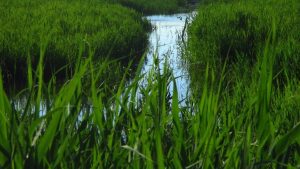 The ECO-SMART is a cross-border cooperation program project that faces the challenges to more effectively monitor the state of climate change and to plan appropriate adaptation measures to prevent the negative effects that threaten the quality of biodiversity in selected NATURA 2000 sites of the included regions.
The ECO-SMART is a cross-border cooperation program project that faces the challenges to more effectively monitor the state of climate change and to plan appropriate adaptation measures to prevent the negative effects that threaten the quality of biodiversity in selected NATURA 2000 sites of the included regions.
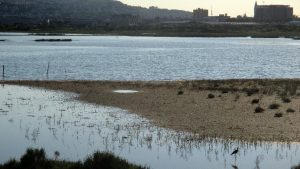 The general purpose of the ECO-SMART project is to assess at cross-border level the economic feasibility of biodiversity protection measures and climate change adaptation measures in NATURA 2000 sites through the pilot introduction of payment for ecosystem services tools.
The general purpose of the ECO-SMART project is to assess at cross-border level the economic feasibility of biodiversity protection measures and climate change adaptation measures in NATURA 2000 sites through the pilot introduction of payment for ecosystem services tools.
The specific objectives of the ECO-SMART project are:
- the use of harmonized approaches for the analyses and evaluation of ecosystem services;
- creating methodological frameworks that will enable the analysis of climate change vulnerability in selected NATURA 2000 sites;
- pilot design of adaptation plans, of which the sustainability will be ensured through models of payment for ecosystem services.
Project duration: 24 months (1. 4. 2020- 31. 3. 2022)
Project partners:
LP: Veneto Region
PP2: Municipality of Monfalcone
PP3: University of Padua, Department of industrial engineering
PP4: Regional Development Centre Koper
PP5: Science and Research Centre Koper
Participating institute of the SRC Koper: Mediterranean Institute for Environmental Studies
Project leader on behalf of the SRC Koper: Liliana Vižintin, PhD (Liliana.Vizintin@zrs-kp.si)
Collaborators on behalf of SRC MIES: Suzana Škof, PhD (Suzana.Skof@zrs-kp.si) and Cécil Meulenberg, PhD (Cecil.Meulenberg@zrs-kp.si)
Project website: www.ita-slo.eu/eco-smart
JeŠT - Languages Matter
Languages Matter
Project start: 1. 4. 2017
Project duration: 62 months
Project leader at ZRS Koper: Lucija Čok, PhD, Principal Research Fellow
Participating institute ZRS Koper: Institute for Linguistic Studies
Structural Funds of the Ministry of Education, Science and Sport: Development and implementation of innovative learning environments and flexible forms of learning to raise general competencies. 1.3 Plurilingualism
The project is co-financed by the European Social Fund (ESF) and the Ministry of Education, Science and Sport.
The applied project ESS MIZŠ JEZIKI ŠTEJEJO – LANGUAGES MATTER strives to promote learning environments in which children in kindergartens, pupils of primary schools and students will acquire a multilingual competence, that is new knowledge, points of view and skills, and at the same time accelerate the democratic processes in a multicultural society. The project includes 35 partners: kindergartens, primary and secondary schools, universities and research institutes from all regions of Slovenia. All the languages of schools in Slovenia, other languages, foreign and classical languages are included, conceiving also all immigrant children’s first languages included in the school system. The design and vision of the six-year project is so broad and worthwile that hopefully it will also include possible new languages and all communities that are located in Slovenia and other contexts that promote and support multilingualism and interculturalism.
With its modern and innovative web portal, the project’s long-term goal is to overcome the distinction between linguistic and non-linguistic subjects by promoting plurilingualism and developing digital competences to connect different subject areas with all the languages present in the Slovenian environment. Furthermore, the project aims to reach beyond the educational context into local communities and thus give meaning to both subject content and competence development.
REInSER – Refugees’ Economic Integration through Social Entrepreneurship
REInSER – Refugees’ Economic Integration through Social Entrepreneurship 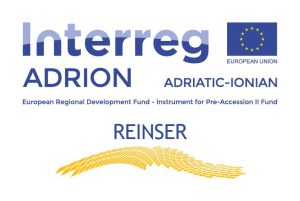
Interreg ADRION Adriatic Ionian region, European regional development fund – Instrument for pre-accession II fund, Priority Axis 1 – Innovation (Smart Region), Topic 2: Social Innovation.
The project deals with economic integration of refugees through social entrepreneurship, which is a pressing issue in the time of increased migration flows. It aims at tapping the potential of networking and knowledge transfer of transnational as well as cross-sectional cooperation of key stakeholders (business support organisations, intercultural mediators, NGOs dealing with integration of refugees and/or social entrepreneurship/social economy, governmental bodies and governmental organisations dealing with integration of refugees and/or social entrepreneurship/social economy, local and regional authorities, academia, refugees, asylum seekers, social economy entrepreneurs). The main objective of the project is to improve the economic, and consequently wider, integration of refugees and asylum seekers in host societies of partners’ area by using approaches of social economy and in particular social entrepreneurship. The long-term objective is to enhance possibilities for refugees to become active economic actors and agents of their own integration in given host society on one hand and to contribute to the local and regional sustainable economic development by generating employment and supporting the creation of new social responsible businesses on the other hand.
REInSER outputs involve:
- The creation of an innovative transnational cooperation network which will bring together national, regional and local governments, governmental bodies, NGOs, social entrepreneurs, academics and refugees in a common programme as the first of its kind in ADRION region.
- Transnational exchange of knowledge from study trips, best practices and experimental social ecosystem established through pilot actions and the insights from their evaluation, as well as the introduction of social innovation approaches supported by a broad range of local stakeholders which will create long-term competences.
- The preparation of a holistic transnational strategy and action plan for successful integration of refugees in host societies’ economies.
Partner organisations:
- Science and Research Centre Koper (Slovenia)
- Primorski tehnološki park (Slovenia)
- Alma Mater Studiorum – University of Bologna (Italy)
- Municipality of Brindisi (Italy)
- City of Osijek (Croatia)
- Hellenic Open University (Greece)
- Regional Development Agency Srem (Serbia)
- Development Agency of the Una-Sana Canton (Bosna and Herzegovina)
Project duration: 1. 2. 2021–31. 1. 2023
Project holder: ZRS Koper, Slovenia
Project leader at ZRS Koper: Maja Zadel, PhD
Participating institute at ZRS Koper: Institute for Social Studies
Webpage: https://reinser.adrioninterreg.eu/
Merlin CV – Multisensorial Experiences Linked to Castles and Villas for Excellence in Tourism in Crossborder Region
Merlin CV – Multisensorial Experiences Linked to Castles and Villas for Excellence in Tourism in Crossborder Region
Interreg V-A Italija-Slovenija 2014-2020
Project duration: 1. 1. 2019 – 31. 12. 2021
Project leader at ZRS Koper: Dragica Čeč, PhD, Senior Research Fellow
Participating institute ZRS Koper: Institute for Historical Studies
Partner organisations:
- Universita Ca’Foscari di Venezia (Italia),
- Tourism and Hospitality Chamber of Slovenia,
- Commune di Salzano (Italia),
- ARIES Trieste (Italia),
- Comunita’ Collinare del Friuli (Italia),
- Municipality of Pivka (Slovenia),
- Municipality of Tolmin (Slovenia).
METROFOOD-PP
METROFOOD-RI – Preparatory Phase project
H2020 – INFRADEV-2018-2020/H2020-INFRADEV-2019-2
Partner organisations:
- Agenzia Nazionale per le Nuove Tecnologie, l’Energia e lo Sviluppo Economico Sostenibile (Italy)
- Sciensano (Belgium)
- PREMOTEC GmbH (Switzerland)
- Ceska Zemedelska Univerzita V Praze (Czech Republic)
- University of Chemistry and Technology Prague (Czech Republic)
- Technische Universität München (Germany)
- Fundacio EURECAT (Spain)
- Ruokavirasto EVIRA (Finland)
- Université de Pau – Laboratoire de Chimie Analytique Bio-inorganique et Environnement (France)
- Aristotelio Panepistimio Thessalonikis (Greece)
- University of Szeged (Hungary)
- DAS Foundation “For a Moldova Based on Knowledge” (Moldova)
- Institute of Public Health of Republic of Macedonia (North Macedonia)
- National Institute for Public Health and the Environment (Netherlands)
- Stichting Wageningen Research (Netherlands)
- Norwegian University of Science Technology (Norway)
- Instituto Nacional de Saúde Dr. Ricardo Jorge (Portugal)
- Institutul National de Cercetare-Dezvoltare pentru Bioresurse Alimentare (Romania)
- Jozef Stefan Institute (Slovenia) – ZRS Koper (pridruženi partner)
- Turkiye Bilimsel Ve Teknolojik Arastirma Kurumu (Turkey)
Project start: 1. 1. 2020
Duration of the project: 30 months
Project leader at ZRS Koper: Milena Bučar Miklavčič, PhD
Participating institute ZRS Koper: Institute for Oliveculture
MiR - Sea and river, "mlinščice" and Rižana river
Sea and river, “mlinščice” and Rižana river
Project start: 1. 4. 2018
Project duration: 32 months
Project leader at ZRS Koper: Vesna Mikolič, PhD
Participating institute ZRS Koper: Institute for Linguistic Studies
The project is indirectly financed by the European Regional Development Fund (ERDF).
Okusi morje 2
Okusi morje 2 – Izobraževanje o klapavicah
Začetek izvajanja operacije: 01. 03. 2020
Čas trajanja operacije: 18 mesecev
Vodilni partner operacije: GASTRO PROJECT d.o.o., vodja operacije Suzana France
Partner v operaciji: ZRS Koper, Inštitut za kineziološke raziskave, dr. Cecil Johannes Wilhelmus Meulenberg
Spletna stran projekta: www.okusimorje.info
Naložbo sofinancirata Evropski sklad za pomorstvo in ribištvo (ESRP) in Republika Slovenija (RS).
Namen operacije »OKUSI MORJE 2« – Izobraževanje o klapavicah je spoznavanje in osveščanje javnosti o lokalno ekološko pridelanih klapavicah, skozi celotno zgodovino – tradicijo in razvojem, ki je gospodarno – trajnosten, morju – naravi prijazen način gojenja, ki ohranja biodiverziteto. Brez vplivov – obremenitev na okolje, za človeka pa pomemben naraven in zdrav vir živila, ki je cenovno dosegljiv vsem slojem družbe, trenutno še premalo poznano živilo. Cilji operacije so pridobivanje znanja, dvig zavesti, krepitev konkurenčnosti gospodarstva v povezavi s podeželjem in sonaravnim ribištvom – marikulturo z uporabo lokalno pridelanih sestavin, s poudarkom na ekološkem kmetijstvu po vzoru KM 0 – mreženje. Vzpodbudili bomo povezovanje lokalnih pridelovalcev na območju LAS Istre za kvalitetno bivalno okolje in turistom zanimivo destinacijo z večjimi možnostmi za zaposlovanje v turizmu in širše.
OLEUM - Novel science based, ready to use, harmonised solutions to enforce Olive oil quality and purity Authentication in the global market
Novel science based, ready to use, harmonised solutions to enforce Olive oil quality and purity Authentication in the global market
H2020 – SFS-14-2014/2015: Authentication of food products A.[2014] Authentication of olive oil
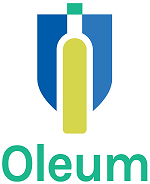
The OLEUM project will generate innovative, more effective and harmonized analytical solutions to detect and fight the most common and emerging frauds and to verify the overall quality of olive oils (OOs). By a core group of 20 partners from 15 countries OLEUM will undertake RESEARCH ACTIVITIES based on the development of IMPROVED and NEW ANALYTICAL METHODS by targeted and omics approaches with the aim: i) to detect new markers of the soft deodorization process; ii) to discover illegal blends between OOs and other vegetable oils; iii) to control OO quality (e.g. freshness); iv) to improve the organoleptic assessment with a Quantitative Panel Test, based on current official methods, and supported by tailored reference materials for better calibration of the sensory panels coupled with rapid screening tools to facilitate the work of the panelists. The most promising OLEUM solutions will be subjected to VALIDATION in conformity with internationally agreed standards by peer laboratories. OLEUM will recreate a realistic “deodorization scenario” by producing tailored, soft deodorized OOs by lab-scale and up-scaled pilot plants to apply analytical solutions to known samples. Substantial KNOWLEDGE and TECHNOLOGY TRANSFER activities will be envisaged to aid in implementation of: a) a web-based easily-accessible, scalable and constantly updated OLEUM DATABANK, containing all the information from OLEUM research and other reliable international sources, will be available for download data and spectra and to help achieve satisfactory harmonization of analytical approaches among control laboratories; b) the OLEUM NETWORK of relevant OOs stakeholders to maximize the impact of proposed analytical solutions. Finally, a robust dissemination strategy by the OLEUM project aimed at effectively sharing results with all stakeholders in the OO supply chain has the potential to improve consumer and market confidence, and preserve the image of OOs on a global scale.
Project start: 1. 10. 2016
Duration of the project: 48 months
Project leader at ZRS Koper: Milena Bučar Miklavčič, PhD
Participating institute ZRS Koper: Institute for Oliveculture
Automation and economic viability of irrigation in olive growing
Automation and economic viability of irrigation in olive growing
Rural development 2014-2020 for Operational Groups
Within the general phenomenon of changing climatic conditions the olive industry has also had to adjust the technology of cultivation and proceed to the installation of irrigation systems in olive groves. Several studies have shown that olive tree irrigation is an appropriate countermeasure to climate change. Because of the lack of knowledge and fear of economic inviolability, olive growers rarely opt install an irrigation system. By transferring research results into practice while simultaneously evaluating economic viability, a wider range of olive groves will have knowledge and tools to evaluate the justification of irrigation and establish an automated irrigation system in the plantation.
Project start: 15. 11. 2019
Project duration: 36 months
Project leader at ZRS Koper: Maja Podgornik, PhD
Participating institute ZRS Koper: Institute for Oliveculture
SOLJKE
SOLJKE – Spodbujanje javno-zasebnega partnerstva z razvojem inovativnih proizvodov v oljkarstvu
Project start: 9. 9. 2020
Project duration: 22 mesecev
Project leader: Maja Podgornik, znanstvena sodelavka
Participating institute of the SRC Koper: Inštitut za oljkarstvo
Project results:
- Festival namiznih oljk, Koper, 26. november 2020 (predstavitev in rezultati festivala)
- Strokovno predavanje o zaščiteni označbi porekla namiznih oljk in oljčnega olja, Koper 22. marec 2021
- Priporočila za tolmačenje analize vsebnosti organske snovi in skupnega dušika v tleh
Naložbo sofinancirata Evropska unija iz Evropskega sklada za regionalni razvoj in Republika Slovenija (www.eu-skladi.si)
BASE - Migrant and refugee child-friendly support services in cases of sexual-based violence
BASE – Migrant and refugee child-friendly support services in cases of sexual-based violence
European Commission: “Rights, Equality & Citizenship” (RDAP-GBV-AG-2017)
Migrant and refugee child-friendly support services in cases of sexual and gender-based violence (BASE) addresses the need to counteract gender-based-violence (GBV) against refugee/migrant girls through the development and sustainability of strategies to nurture inclusive communication and a culture of trust between support service professionals, victims, families and communities, thus preventing victim re-traumatization and encouraging reporting of GBV. The project contributes to the development and sustainability of inclusive support services in cases of GBV against girls by Empowering migrant/refugee women as cultural advisors; builds the capacity of professionals to communicate and address their needs and their families’; supports & promotes intersectional cooperation; raises awareness on the problem, its consequences and on the provision of support
Partner organisations:
- Znanstveno-raziskovalno središče Koper (Slovenia)
- Hope for Children UNCR Policy Centre (Cyprus)
- ABIF (Austria)
- KMOP (Greece)
- Rinova (United Kingdom)
- CESIE (Italy)
- APODA (Portugal)
- GAF (Bulgaria)
Project start: 1. 1. 2019
Project holder: Hope for Children, CRC Policy Center, Cyprus
Project leader at ZRS Koper: Blaž Lenarčič, PhD, Research Fellow
Participating institute ZRS Koper: Institute for Social Studies
Keep me safe
Keep me safe: supporting youth peer development tackling sexual abuse
Erasmus+ Youth
National Agency of the project holder: UK British Council, in partnership with Ecorys
Partner organisations:
- Rinova Ltd., London (UK)
- Science and Research Centre Koper (Slovenia)
- Hope for Children UNCR Policy Centre (Cyprus)
- Eurocircle Association (Francija)
- Sdrudzenie Znam i Moga (Bolgarija)
- Sosu Ostjylland (Danska)
- London Youth (Velika Britanija)
Project start: 01. 04. 2019
Project holder: RINOVA LIMITED
Project leader at ZRS Koper: Blaž Lenarčič, PhD, Research Fellow
Participating institute ZRS Koper: Institute for Social Studies
MiCREATE - Migrant Children and Communities in a Transforming Europe
MiCREATE – Migrant Children and Communities in a Transforming Europe
European Commission: HORIZON 2020. SC6-CHANGING WORLD. Europe in a changing world – Inclusive, innovative and reflective societies.
Grant Agreement number: 822664
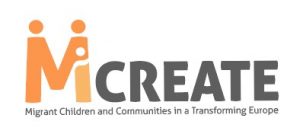 The overall objective of the project is to stimulate the inclusion of diverse groups of migrant children by adopting a child-centred approach to their integration at the educational and policy level. Stemming from the need to revisit the integration policies on the one hand and consistent with the specific focus of the call on the other hand, the research project aims at comprehensive examination of contemporary integration processes of migrant children in order to empower them. The project starts from the fact that European countries and their education systems encounter manifold challenges due to growing ethnic, cultural, linguistic diversity and thereby aims at:
The overall objective of the project is to stimulate the inclusion of diverse groups of migrant children by adopting a child-centred approach to their integration at the educational and policy level. Stemming from the need to revisit the integration policies on the one hand and consistent with the specific focus of the call on the other hand, the research project aims at comprehensive examination of contemporary integration processes of migrant children in order to empower them. The project starts from the fact that European countries and their education systems encounter manifold challenges due to growing ethnic, cultural, linguistic diversity and thereby aims at:
1) Identifying existing measures for the integration of migrant children at the regional and local level through secondary data analysis;
2) Analysis of the social impacts of these integration programmes through case studies in ten countries applying qualitative and quantitative child-centred research;
3) Development of integration measures and identification of social investment particularly in educational policies and school systems that aim to empower children.
The project is problem-driven and exploratory at the same time. Its exploratory part mainly concerns a child-centred approach to understanding integration challenges, migrants’ needs and their well-being. However, the findings of the open-ended exploratory research will be used in an explicitly problem-driven way – with an aim to stimulate migrant inclusion, to empower migrant children and build their skills already within the (participatory) research. This will be done through the activities of the Integration Lab and Policy Lab, where children’s voices, fieldwork and desk research findings will be translated into practices and measures for educational professionals and practitioners as well as into a child-centred migrant integration policy framework to stimulate social inclusion and successful management of cultural diversity.
Partner organisations:
- Science and Research Centre Koper (Slovenia)
- Hope for Children UNCR Policy Centre (Cyprus)
- The Manchester Metropolitan University (United Kingdom)
- Hellenic Open University (Greece)
- CNRS (France)
- CESIE (Italy)
- DYPALL Network: Developing Youth Participation at Local Level (Portugal)
- The Peace Institute (Slovenia)
- University of Ljubljana Faculty of Computer and Information Science (Slovenia)
- Syddansk Universitet (Denmark)
- Universitat de Barcelona (Spain)
- Stowarzyszenie Interkulturalni (Poland)
- Universität Wien (Austria)
- Udruga Centar za mirovne studije (Croatia)
- Faculty of Design, Associated member of University of Primorska (Slovenia)
Project duration: 1. 1. 2019 – 31. 12. 2021
Project holder: ZRS Koper, Slovenia
Project leader at ZRS Koper: Mateja Sedmak, PhD, Principal Research Fellow
Participating institute ZRS Koper: Institute for Social Studies
REALMed - Pursuing authenticity and valorization of Mediterranean traditional products
Pursuing authenticity and valorization of Mediterranean traditional products REALMed
ARIMNet2 call 2016
Project start: 1. 1. 2018
Project duration: 24 months
Project leader at ZRS Koper: Maja Podgornik, PhD
Participating institute ZRS Koper: Institute for Oliveculture
REMix - The university as an advocate for responsible education about migration in Europe
REMix – The university as an advocate for responsible education about migration in Europe
Erasmus+
REMix focuses on the social, educational and intellectual role of the European university as an agent advocating for inclusion, equality and social justice in matters relating to migration. The engagement of universities in public contemporary debates plays an important role in shaping student‘s understanding of societal matters and democratic and civic engagement. The main objectives of the project are:
- To strengthen the role played by the university in advocating for constructive, responsible and inclusive education about migration in Europe.
- To facilitate and improve the possibilities for immigrants and refugees to have access to higher education.
- To encourage European universities to provide a rational vehicle for contributions to the knowledge and the informed debate around migration.
The project addresses the specific need to engage university students in reflection on the important societal issues of migration and inclusion. It proposes to create an innovative interactive course for university students in several European universities; the format of the course allows students at the transnational level to interact and work with each other and stimulate cross-cultural discussions and experiences. Project targets and involves three groups of individuals within the project: (1) students and future researchers and practitioners who get to develop cross-cultural skills and a sensitivity to diversity by taking the course; (2) migrants in European countries who will profit from the exchange of ideas about best practices to welcome them at the university and (3) university teachers learning to collaborate across Europe in order to develop a common course on migration.
Partner organisations:
- Háskólinn á Akureyri (Iceland)
- Znanstveno-raziskovalno središče Koper (Slovenia)
- Aristotelio Panepistimio Thessalonikis (Greece)
- Universidade da Madeira (Portugal)
- ARMES progetti (Italy)
- Università degli Studi di Firenze (Italy)
Project start: 1. 10. 2018
Project holder: Haskolinn a Akureyri, Iceland
Project leader at ZRS Koper: Barbara Gornik, PhD, Assistant with Doctorate
Participating institute ZRS Koper: Institute for Social Studies
The Role of North Adriatic Ports
The Role of North Adriatic Ports
KIC 2018
Project duration: 1. 2. 2019 – 31. 7. 2019
Project holder: ZRS Koper, Slovenia
Project leader at ZRS Koper: Helena Motoh, PhD, Senior Research Fellow
Participating institute ZRS Koper: Institute for Philosophical Studies
MEMORI-net - Mental and Motor Rehabilition of Ictus-Network
Mental and Motor Rehabilition of Ictus-Network
Interreg V-A Italija-Slovenija 2014-2020
MEMORI-net is a joint effort to improve strategies in management of rehabilitation following the stroke, and for defining common diagnostic and therapeutic protocols, based on the most advanced scientific knowledge and the best international practices. With more than 4000 new cases a year appearing on the program area, the stroke represents one of the best is washed by the causes of intellectual and motors and disabilities. Affected people in productive years can blow a deep impact in health system, families and the whole local community economy. Although the stroke is acute vascular damage to the brain can cause damage to the entire body. Patients require interdisciplinary rehabilitation practices, but those are not fully available in all centers of the program area.
Rehabilitation after a stroke requires the involvement of a variety of people institutions and their good coordination, which are hampered by shortages common protocols, limited use of rehabilitation on home and ICT technologies, lack of linguistic tools minorities, legal restrictions on the transfer of personal health information. In order to solve these territorial problems MEMORI-net strives to create an excellent interregional network that will include various entities for stroke units and university centers specializing in diagnostics and ICT, rehabilitation centers, thermae and patient associations it has affected by stroke. Through an effective program communication and education of medical teams and patient families MEMORI-net will promote mutual knowledge exchange and improving rehabilitation practices. MEMORI-net will contribute to EUSALP and EUSAIR strategies by offering a network. It will confirm the confirmation of innovative rehabilitation products and will be also interesting for patients from other regions. MEMORI-net will be also continued after the expiry of the project, as it will also open new perspectives of rehabilitation, following other neurological diseases.
Project start: 1. 10. 2017
Project duration: 18 months
Project leader at ZRS Koper: Rado Pišot, PhD, Principal Research Fellow
Participating institute ZRS Koper: Institute for Kinesiology Research
INTEGRA - Cross-border network for migrant women: social integration, sexual and reproductive health
Cross-border network for migrant women: social integration, sexual and reproductive health
Interreg V-A Italija-Slovenija 2014-2020
Due to the proximity of the “Balkan Paths” the research area (FVG & Slovenian Coastal area and Inner Carniola) faces the growth in the number of immigrants from the Middle East and Africa. The presence of women from very different cultures brings new challenges related to integration at all institutional levels. The project addresses the less research topic of protecting the sexual and reproductive health of migrant women coming from cultures with strong patriarchal patterns. Firstly, the assessment of the phenomenon will be done by using interdisciplinary approach (medicine, anthropology, sociology, demography etc.). This will be followed by the development of guidelines for health and social workers. In addition, training for social and health professionals is foreseen to address the problems of intercultural communication and, in particular, medical training of health professionals on the treatment of migrants, even in difficult cases such as female genital mutilation. The project will be carried out in the cross-border area for two reasons: migration is a phenomenon affecting the border areas and another reason being the exchange of good practices and the formulation of common guidelines. Italian healthcare institutions have many experiences with the care of immigrants from countries of Asia and Africa, while such patients in Slovenia are a new phenomenon, as Slovenian health structures have so far faced problems mostly with the sexual and reproductive health of women, especially from the countries of the former Yugoslavia.
Partner organisations:
- Znanstveno-raziskovalno središče Koper (Slovenia)
- Department of Political and Social Sciences of the University of Trieste (Italy)
Project start: 14. 2. 2018
Project holder: Dipartimento di Scienze Politiche e Sociali, Italy
Project leader at ZRS Koper: Mateja Sedmak, PhD, Principal Research Fellow
Participating institute ZRS Koper: Institute for Social Studies
SCH YA - Efficient recommended MVPA obtainement for school children and teenagers
Over the last half century, we have simply stopped moving. Health organisations report that EU faces an epidemic of physical inactivity (PI), over 2/3 of population don’t meet daily guidelines for physical activity (PA). Even smaller percentage of children and youth reach the guideline levels. As a consequence, the WHO reports that PI is becoming killer No 1. Engaging children and youth in moderate to vigorous PA (MVPA) prepares them to lead physically active lives and improve health and academic outcomes. Schools play a central role in providing opportunities for children and youth to engage in PA. Physical education class (PE) is the one time during the day when all children and youth can be active. The other way is to offer them organized physical activities within existing sport clubs. Along those line, the School YA project aims to develop a model for raising daily level of the MVPA and decreasing PI in the target group of youngsters aged 12 to 15. Recent Slovenian, Dutch, and USA studies reports that 45 minutes PE classes last no more than 36, with only 9-13 min of MVPA and 16 min of PI, so youngsters do not reach more than 25% of recommended MVPA (EU Physical Activity Guidelines recommend 60 minutes daily). The project partnership (5 grass root athletic clubs and University of Primorska) plan to develop curricula for 15 PE hours that meets >50% MVPA. PE content will be selected from the lists of all motor abilities and adjusted for gender and age (12-15 years). The curricula will be developed in cooperation of athletic coaches working in sport clubs with PE teachers from elementary schools under the supervision of researchers and scientists. Developed and adjusted curricula will be presented at 10 minutes long video clips and freely distributed to PE professionals. In order to cover all basis, the clubs will organize local campaigns to encourage youngsters to join existing sport clubs in order to raise their MVPA to minimal recommended levels.
Project start: 1. 1. 2017
Duration of the project: 24 months
Project leader at ZRS Koper: Boštjan Šimunič, PhD, Principal Research Fellow
Participating institute: Institute for Kinesiology Research
JudEx+: Towards a child-friendly justice in cases of sexual violence against children
JudEx+: Towards a child-friendly justice in cases of sexual violence against children
Programme: EC – “Rights, Equality & Citizenship” (JUST/2014/RCHI/AG/PROF/7036)
Duration: 1. 10. 2015 – 30. 9. 2017
Project holder: Hope for Children, UNCRC Policy Center, Cyprus
Head of the project at ZRS Koper: Tjaša Žakelj, PhD
Participating institute ZRS Koper: Institute for Social Studies
JudEx+ was a project focused on supporting a positive judicial experience for children victims of sexual violence. The project aimed to improve the child’s experience when entering the judicial system in cases of sexual violence against children by improving the skills of professionals involved in representing children in judicial proceedings through trainings which take into consideration children’s rights, their developmental needs, and social background in countries where the Lanzarote Convention has been ratified.
Partner organisations:
- Univerza na Primorskem, Znanstveno-raziskovalno središče (Slovenia)
- Hope for Children UNCR Policy Centre (Cyprus)
- Frederick University (Cyprus)
- RINOVA (United Kingdom)
- CESIE (Italy)
- Know and Can (Bulgaria)
- Folkuniversitetet (Sweden)
Burnt in memories
Burnt in memories
Programme: Evropa za državljane (sklop: Evropski spomin)
Duration: 1. 8. 2015 – 31. 1. 2017
Project holder: Univerza na Primorskem, Znanstveno-raziskovalno središče
Head of the project: dr. Gašper Mithans
Participating institute ZRS Koper: Inštitut za zgodovinske študije
Mednarodni projekt Burnt in memories, ki ga sofinancira Evropska komisija, inovativno pristopa k skoraj prezrti tematiki požigov vasi v Julijski krajini, v sicer v zadnjem času precej nasičenih izvajanjih o 2. svetovni vojni. V raznolikem partnerstvu iz Italije (Associazione Quarantasettezeroquattro, Občina Dolina, Kinoatelje), Hrvaške (Istarsko povijesno društvo, Udruga »Žejane«) in Slovenije (Kulturno izobraževalno društvo Pina, UP ZRS), ki ga vodi UP ZRS, je fokus na družbeno angažiranih aktivnostih, stiku z lokalnim in čezmejnim okoljem ter medgeneracijskemu dialogu. V izbranih »požganih vaseh« se bo o uničenju domov, preživetju in povojni obnovi postavila potujoča fotografska razstava (vodja: Istarsko povijesno društvo), posnel krajši dokumentarni film (vodja: Kinoatelje), da bi ti dogodki ne prešli v pozabo, pa se bo postavilo tudi obeležja (vodja: Associazione Quarantasettezeroquattro). Sodelavci Inštituta za zgodovinske študije UP ZRS bodo z organizacijo usposabljanja iz ustne zgodovine ter okrogle mize v obliki webinarja nagovorili študente in raziskovalce ter druge zainteresirane v sodelujočih državah in v »virtualnem svetu«.
A-Qu-A - Active and Qality Ageing in Home Environment
A-Qu-A – Active and Qality Ageing in Home Environment
Programme: The Norvegian Financial Mechanism 2009–2014 Programme
Period: 9. 4. 2015 – 31. 12. 2016
Project holder: Zavod za oskrbo na domu Ljubljana
Head of the project at ZRS Koper: PhD Rado Pišot
Participating institute ZRS Koper: Institute for Kinesiology Research
More info: A-Qu-A
MinAs - In Whose Best Interest? Exploring Unaccompanied Minors’ Rights Through the Lens of Migration and Asylum Procedures
In Whose Best Interest? Exploring Unaccompanied Minors’ Rights Through the Lens of Migration and Asylum Procedures
Programme: European Commission: (DG HOME/2013/CFP/PPUAM Unacompanied Minors)
Duration: 15. 6. 2014 – 15. 12. 2015
Project holder: University of Primorska, Science and Research Centre
Project leader: Mateja Sedmak, PhD, Principal Research Fellow
Participating institute ZRS Koper: Institute for Social Studies
The project »In whose best interests? Exploring unaccompanied minors’ rights through the lens of migration and asylum processes (MinAs)« was a research project carried out in four European Countries (Slovenia, Austria, France and United Kingdom) in the period from June 2014 to December 2015. The project was financed by European Commission and its main aim was to locate and suggest better solution regarding procedures and protection measures of unaccompanied minors (UAM).
The project examined UAM’s reception, protection, asylum and return procedures and focuses on: 1) The concept of best interest of the child (BIC) and 2) The formal processes of best interest determination (BID).
Partner organisations:
- Univerza na Primorskem, Znanstveno-raziskovalno središče (Slovenia)
- University of Vienna (Austria)
- University of Brighton (United Kingdom)
- Centre national de la recherche scientifique (France)
- Slovenska Filantropija (Slovenia)
- Inštitut Republike Slovenije za socialno varstvo (Slovenia)
OSSIPPIT - Organization of Direct Sales of Agricultural Products with the Help of the Internet
OSSIPPIT – Organization of Direct Sales of Agricultural Products with the Help of the Internet
Programme: Slovenia – Croatia 2007-2013 Cross Border Cooperation Programme
Duration: 1. 1. 2014 – 15. 3. 2015
Project holder: Institut za poljoprivredu i turizam, Poreč, Croatia
Head of the project at ZRS Koper: Milena Bučar Miklavčič
Participating institute ZRS Koper: Institute for Oliveculture
Partner organisations:
- Institut za poljoprivredu i turizam, Poreč (Croatia)
- Univerza na Primorskem, Znanstveno-raziskovalno središče (Slovenia)
- City of Vodnjan (Croatia)
- University Maribor, Faculty of Agriculture and Life Sciences (Slovenia)
ISTRIA’S GROWTH - Natural Heritage Conservation - the Revitalization of Fruit Species Characteristic of Istria
ISTRIA’S GROWTH – Natural Heritage Conservation – the Revitalization of Fruit Species Characteristic of Istria
Programme: Slovenia – Croatia 2007-2013 Cross Border Cooperation Programme
Duration: 1. 1. 2014 – 15. 3. 2015
Project holder: University of Ljubljana, Biotechnical faculty
Head of the project at ZRS Koper: Milena Bučar Miklavčič
Participating institute ZRS Koper: Institute for Oliveculture
Partner organisations:
- University of Ljubljana, Biotechnical faculty (Slovenia)
- Univerza na Primorskem, Znanstveno-raziskovalno središče (Slovenia)
- Občina Vižinada (Croatia)
- Udruga “Triada” (Croatia)
WELLFOOD - Promoting Food Innovation for Wellness in the Adriatic
WELLFOOD – Promoting Food Innovation for Wellness in the Adriatic
Programme: IPA – Adriatic Cross-Border Cooperation Programme 2007-2013
Duration: 1. 10. 2012 – 31. 5. 2015
Project holder: Province of Forlì-Cesena (Italy)
Head of the project at ZRS Koper: Maja Podgornik, PhD, Research Fellow
Participating institute ZRS Koper: Institute for Oliveculture
Partner organisations:
- University of Primorska, Science and Research Centre, Koper (Slovenia)
- Chamber of Commerce of Macerata (Marche Region, Italy)
- Marche Region – Department of Agriculture, Forestry and Fishing (Italy)
- LIR Local Development Initiative (Bosnia – Herzegovina)
- Agency for extension services in agriculture (Bosnia – Herzegovina)
- Chamber of Economy of Montenegro (Montenegro)
- Regional Chamber of Commerce of Uzice (Serbia)
- Innopolis (Greece)
- Agriculture University of Tirana (Albania)
PANGeA - Physical Activity and Nutrition for Quality Ageing
PANGeA – Physical Activity and Nutrition for Quality Ageing
Programme: Cross-border Cooperation Programme Slovenia – Italy 2007-2013
Duration: 1. 10. 2011 – 31. 12. 2014
Project holder: University of Primorska, Science and Research Centre
Project leader at ZRS Koper: Rado Pišot, PhD, Principal Research Fellow
Participating institute ZRS Koper: Institute for Kinesiology Research
European population is ageing (Lutz et al, Nature 2008). The population older than 65 years in the border regions between Slovenia and Italy is relatively high (18-20%). This is a diverse population including many motor/sports active persons, so that a 75-year-old person of today can be compared with a 55-year-old 30 years ago, on the other hand, there are also many individuals suffering from chronic diseases and weak muscular and skeletal system, for which we could also say that have aged too soon. Research has many times proved a strong impact of lifestyle on the process and consequences of ageing, whereas, the criteria of healthy ageing have not been defined yet. The global problem of ageing and the challenges of searching for healthy ageing criteria, which will enable individuals to lead quality life and be independent in their old age, have become one of the most significant problems of the modern society. Thus, the European Commission has proclaimed the year 2012 as the Year for Active Ageing and Solidarity between Generations.
A few years before the EU had decided to dedicate such an extent of attention to this issue, the Institute of Kinesiology Research of the Science and Research Centre of the University of Primorska decided to explore and study the ageing criteria together with local and foreign partners and offer the society all levers in order to be able to cope with this issue based on specific findings and knowledge. Numerous scientific findings prove the exceptional efficiency of motor activities and healthy nutrition in reducing health risks and enhancing the independence of living of the older population. Appropriate information and notifying the public, which involves the cooperation of different organisations, can positively influence the quality of life of the older population. The Cross-border Cooperation Slovenia – Italy 2007-2013 Programme – PANGeA unites public institutions from participating regions that are active in the field of assuring the quality of living of the older population, institutes, universities, hospitals, municipalities and the Health Protection Institute of the Republic of Slovenia. Promotion, education programmes and direct physical activities will enable us to apply the knowledge on lifestyle that improves the quality of living, in practice for target groups of older citizens. We shall use the network of existing health care (hospitals), social (elderly homes) and private (fitness centres) entities, which are mainly operating in the fields of activities, which are the subject of this project. Fitness programmes for the elderly and healthy nutrition measures, which we will apply, will contribute to improved general health condition, reduce the risks of acute injuries and chronic diseases. On the other hand, we shall study the effects of permanent inactivity and develop programmes for a more efficient/faster regeneration of motor functions, and the independence after hip surgeries, which have become one of the most occurring problems that the elderly are coping with.
Project activities strive to exceed the low coordination level between health care and other public institutions. Prior to providing information to the public, project partners study the situation of the older population in the project area, and by interpreting the characteristics of healthy and active elderly people they try to define the criteria of healthy ageing. The activities involving the accumulation of normative values and the implementation of intervention programmes, which are implemented within the scope of the project, bases on organisational, promotional, science-research and subject-related integration of all project partners and other stakeholders. In this way we are establishing a permanent organisation network (universities-hospitals, universities-municipalities-elderly homes, universities-private persons-pensioners’ organisations etc.), which will enable further development of the health and quality of living of the population, living in the cross-border area.
General objectives of the project
- Defining healthy ageing factors;
- Setting up content-related and HR bases of the international excellence centre (SLO-ITA) in the field of health of elderly citizens;
- Raising awareness on the significance of healthy ageing, social inclusion and mobility of less privileged populations (the elderly);
- Reducing the costs of health care;
- Connecting the existing health care, social and private entities and improving their mutual coordination.
The programme area includes institutes and universities that have achieved excellent results on an international level, namely in the field of medicine, space physiology, kinesiology, nutrition studies and health in general. It is well known that numerous fields of work can supplement each other when they are discussed jointly. Our work bases on merging border sciences, translating knowledge and technologies, which presents an efficient instrument, thus being the priority of numerous European programmes. We are well aware of the fact that health models, exercise and nutrition programmes are outdated, and, as the results of modern lifestyle studies show, also inefficient. Many experiences in research, the simulation of ageing (bed rest studies) and healthy ageing simulation (sportsmen – the elderly) have enabled us to acquire many findings that can be applied in health care centres, rehabilitation centres, elderly homes, fitness and wellness centres, sports clubs, and last but not least, for every individual. Despite this, the PANGeA project will need to answer some other scientific questions that refer to the impact of motor inactivity on the elderly and consequently on their health. Applications that will be guaranteed by the general objectives, are as follows:
- Programmes for minimum and optimum motor/sports activity of the elderly;
- Defined efficient procedures of data collection on the health of different target population or populations with different pathological conditions;
- Renewed rehabilitation plans for faster recuperation after surgeries of acute and chronic injuries of the hip joint;
- Food programmes for hindering catabolic processes that occur with motor inactivity;
- Establishment of motor health parks for the elderly.
Operative objectives of the project
- Setup of a mobile health laboratory with measuring equipment and qualified measurers;
- Setup of a web portal (graphic interface, database, reporting and informing portal) about the health of inhabitants (in Slovene, Italian and English language);
- 1000 measurements of health factors of people from the entire programme area including simultaneous promotion campaigns;
- Adjustment and redefinition of health factors transferred from youngsters to the elderly by considering environmental factors;
- Organisation of 20 free training seminars for training fitness trainers for the elderly, 12 free demonstration meetings for fitness programmes for the elderly, performed at their homes, both equally distributed in all six regions;
- Organisation of six scientific meetings, intended for strengthening the project consortium.
Operative objectives are defined in accordance with achieving general project objectives. We work in order to enhance the quality of living of inhabitants from the programme area, as well as on a more global level. Promoting and encouraging health, health monitoring, health care measures and preventive measures are the key mechanisms that will enable the programme region a coordinated development of health and social life. Less privileged groups present a large part of the entire population, which is increasing every year. Our preliminary local projects have resulted in many findings that will acquire a new dimension, when we will be able to connect these findings via a consortium.
The project has been drafted in the sense of setting up healthy ageing criteria, based on connecting interdisciplinary knowledge and the implementation of mass measurements on the elderly, thus enabling the basis for constructing a permanent network of institutions that will offer health care and rehabilitation services in order to stimulate the recovery period. Everything mentioned above can be transferred to the level of national policies, which could enable the increase of the quality of life of the elderly by synergising permanent networks (connections between hospitals and joint functional centres) on the entire programme area.
The project also has a research focus, since joint criteria for healthy ageing will be set up by connecting universities and other public research institutions (University of Primorska, University of Trieste, University of Udine and the Ferrari University, as well as the Health Protection Institute of the Republic of Slovenia, Izola General Hospital and Valdoltra Orthopaedic Hospital) based on interdisciplinary and international knowledge. Furthermore, by introducing intervention programmes, we shall contribute to enhancing the quality of life of the elderly, whereas physical activity is the core mean of social integration.
Bridges of Expertise to Fight Gender Based Violence
Bridges of Expertise to Fight Gender Based Violence
Programme: EuropeAid – IPA
Duration: 1. 2. 2014 – 1. 11. 2015
Project holder: Kapadokya Kadın Dayanışma Derneği, Turkey
Project leader at ZRS Koper: Mateja Sedmak, PhD, Principal Research Fellow
Participating institute ZRS Koper: Institute for Social Studies
Activities of the project envisage capacity building, research and data collection on needs assessment of the local public and civil society stakeholders , exchange of best practice with EU based counterparts, actions in support to widening the scope of services in area of prevention and assistance to victims in combating the violence against women as well as a series of local and EU wide awareness raising events on issues related with gender based violence. Entire action promotes inter-sectoral partnership based initiatives for improving the situation in local communities so as to develop sustainable services to victims, help encourage women to participate in social, economic and political life of respective local communities in Turkey.
Partner organisations:
- Kapadokya Kadın Dayanışma Derneği (Turkey)
- Nevşehir Belediyesi (Turkey)
- Kırşehir Belediyesi (Turkey)
- Karadeniz Ereğli Belediyesi (Turčija)
- Zonguldak Belediyesi – Zonguldak Municipality (Turkey)
- Nevşehir Üniversitesi/NÜKÇAM (Turkey)
- C.M.C. HOPE – ONLUS (Italy)
- Provincia di Gorizia (Italy)
- Comune di Monfalcone (Italy)
- Comune di Sacile (Italy)
- Društvo za razvijanje prostovoljnega dela Novo Mesto (Slovenia)
- Center za socialno delo Koper (Slovenia)
- Association of Local Democracy Agencies (France)
Organised Labour and Migrant Workers - In Search of Comparative Practices
Organised Labour and Migrant Workers – In Search of Comparative Practices. A Comparative Analysis of Trade Union Responses to Migrant Labour in Slovenia, Austria, Italy, Croatia, Serbia and the Former Yugoslav Republic of Macedonia
Programme: European Commission
Duration: 1. 12. 2012 – 30. 10. 2013
Project holder: University of Primorska, Science and Research Centre, Slovenia
Project leader at ZRS Koper: Mateja Sedmak, PhD, Principal Research Fellow
Participating institute ZRS Koper: Institute for Social Studies
The purpose of the international project is to examine the situation of migrant workers and the role of trade unions in representing and enforcing the rights of migrant workers in the six partner countries – in four EU countries (Slovenia , Austria, Italy and Croatia ) and these two third countries (Serbia and the former Yugoslav Republic of Macedonia). At at the same time the project aims to inform the general public about the situation of migrant workers. The specific objective of the project is to identify the trade union organizations representing migrant workers, to promote transnational co-operation of trade unions in the region and through a set of best practices to share information and experience, which would lead to more effective representation and protection of the rights of migrant workers.
Partner organisations:
- University of Primorska, Science and Research Centre (Slovenia)
- Splitsko sveučilište, Filozofski fakultet (Croatia)
- Univerzitet u Beogradu, Filozofski fakultet, Odeljenje za etnologiju i antropologiju (Serbia)
- Wien Universität, Fakultät für Sozialwissenschaften, Institut für Politikwissenschaft (Austria)
- Istituto di Sociologia Internazionale di Gorizia (Italy)
- Univerzitet “Sv. Kiril i Metodij”, Institutot za etnologija i antropologija (FYRO Macedonia)
Towards safer bicycling through optimisation of bicycle helmets and usage
Towards safer bicycling through optimisation of bicycle helmets and usage
Programme: COST – European cooperation in science and technology
Period: 1. 1. 2012 – 1. 6. 2012
Project holder: University of Primorska, Science and Research Centre
Head of the project at ZRS Koper: Cornelis Peter Bogerd, PhD
Participating institute ZRS Koper: Institute for Kinesiology Research
Cycling is an excellent sustainable alternative to driving. Cyclists have few safety options, of which a helmet is one. However, there are strong indications that law-mediated increases of helmet usage for cyclists cause confounding factors which temper the positive effect of these helmets on head and brain injury. Furthermore, current helmet design is suboptimal. Since several fields are important to bicycle helmet optimization, a combined effort involving all of these is necessary; so that a given parameter is not optimized at the cost of another. Finally, the attitudes of cyclist towards helmets will be focused upon; providing tools for improving helmet usage. The multidisciplinary approach respects the complex nature of the issue, it is unique in Europe, and will provide more complete information to legislators, manufacturers, end-users, and scientists, ultimately leading to increased safety for cyclists.
Children's Voices : Exploring Interethnic Violence and Children's Rights in the School Environment
Children’s Voices : Exploring Interethnic Violence and Children’s Rights in the School Environment
Programme: European Commission
Duration: 1. 1. 2011 – 31. 12. 2012
Project holder: University of Primorska, Science and Research Centre, Slovenia
Project leader at ZRS Koper: Mateja Sedmak, PhD, Principal Research Fellow, Zorana Medarić, MSc, Researcher with Master’s Degree
Participating institute ZRS Koper: Institute for Social Studies
The project “Children’s Voices” is dedicated to an integrated research of violence experienced by children and youth in primary and secondary schools based on their linguistic, religious, cultural and/or racial affiliation. The broad definition of violence adopted in the project includes a variety of forms of violence, including interpersonal or peer violence (physical, psychological, symbolic) as well as institutional violence as reflected in the existing legislation and school regulations, among others.
Partner organisations:
- University of Primorska, Science and Research Centre (Slovenia)
- Wien Universität, Fakultät für Sozialwissenschaften, Institut für Politikwissenschaft (Austria)
- Università degli Studi di Trieste, Dipartimento di Scienze politiche e Sociali (Italy)
- London South Bank University, Faculty of Arts and Human Sciences (England)
- European University Cyprus (Cyprus)
Changing identities of Ethnic Minority Groups
Changing identities of Ethnic Minority Groups – the comparative study of autochthonous and immigrate groups in Austria, Croatia, Kosovo, Slovenia and Serbia
Programme: Austrian Science and Research Liaison Office (ASO)
Duration: 1. 5. 2010 – 30. 4. 2011
Project holder: University of Primorska, Science and Research Centre, Slovenia
Project leader at ZRS Koper: Mateja Sedmak, PhD, Principal Research Fellow
Participating institute ZRS Koper: Institute for Social Studies
The project primarily aimed to establish international network of research groups dealing with the topic of minorities and immigrant groups in different countries. In the scope of the project an international conference was organized on the topic of minorities and minority identities during which the participants from Austria, Croatia, Slovenia and Serbia presented the results of research work and discussed current issues in this field. The project also envisaged an exchange of lecturers.
Partner organisations:
- University of Primorska, Science and Research Centre (Slovenia)
- Wien Universität, Fakultät für Sozialwissenschaften, Institut für Politikwissenschaft (Austria)
- Splitsko sveučilište, Filozofski fakultet (Croatia)
- Univerzitet u Beogradu, Filozofski fakultet (Serbia)
- AAB-RIINVEST – Center for Cultural and Language Research (Kosovo)
S.Ho.W. - Experimental Community Watch of the Effect of Current Social Housing Policies on Welfare Strategies
S.Ho.W. – Experimental Community Watch of the Effect of Current Social Housing Policies on Welfare Strategies
Programme: Cross-border Cooperation Programme Italy-Slovenia 2007-2013
Duration: 25. 1. 2010 – 20. 3. 2014
Project holder: ATER TRIESTE
Project leader at ZRS Koper: Mateja Sedmak, PhD, Principal Research Fellow
Participating institute ZRS Koper: Institute for Social Studies
ATER Trieste is the project leader of Social Housing Watch (S.HO.W.), an experimental community watch of the effect of current social housing policies on welfare strategies as part of the Italy-Slovenia Cooperative Program 2007-2013.
There are three main objectives:
- Establish a permanent watch that will improve the effectiveness of welfare policies adopted by the institutions involved;
- Improve the quality of life, and social and healthcare services inside two micro-areas, Borgo Zindis, Muggia and the historic centre of Koper;
- Create a model of development that can be ‘exported’ and replicated in other geographical areas.
These main objectives are based on the desire to increase the effectiveness of communication between citizens and institutions by encouraging consistent two-way communication. These two neighbourhoods are acting as pilot programs for innovative forms of dialogue to help stimulate active participation and feedback from citizens.
Partner organisations:
- ATER Trieste (Italy)
- Center za socialno delo Koper (Slovenia)
- Mestna občina Koper (Slovenia)
- Javni stanovanjski sklad Mestne Občine Koper (Slovenia)
- Ministrstvo za delo, družino in socialne zadeve (Slovenia)
- Univerza na Primorskem, Znanstveno-raziskovalno središče (Slovenia)
- ACER Ferrara (Italy)
- ATER Treviso (Italy)
- Comune di Muggia – Trieste (Italy)
- ASS. 1 – TRIESTINA – Trieste (Italy)
SHARED CULTURE - Strategic Project for the Knowledge and Availability of Shared Cultural Heritage
SHARED CULTURE – Strategic Project for the Knowledge and Availability of Shared Cultural Heritage
Programme: Cross-Border Cooperation Programme Italy-Slovenia 2007-2013
Duration: 1. 10. 2009 – 31. 12. 2014
Project holder: University of Primorska, Science and Research Centre, Slovenia
Project leader at ZRS Koper: Darko Darovec, PhD, Principal Research Fellow
Participating institute ZRS Koper: Institute for Historical Studies
The strategic project SHARED CULTURE, financed in the framework of the Cross Border Cooperation Programme Italy-Slovenia 2007-2013, by the European Regional Development Fund and national funds, is an answer to the multi-year long need of a better recognition, valorisation and promotion of the shared cultural heritage of the Italy – Slovenia cross-border area, which has origins from the common historical influences of the Venetian Republic and it constitutes also an important element of the Slovenian national identity. With the participation of the University Ca ‘Foscari of Venice, the Veneto Region, the University of Udine, the Institute for Cultural Heritage of Slovenia, the Municipality of Koper and the Self-Governing Italian Community of Koper/Capodistria, in the framework of the project SHARED CULTURE there will study the building Bassegio – Borilnica in the historic centre of Koper/Capodistria, which will be professionally restored and presented to the public. The project also includes researches in the Veneto Region, particularly in the archaeological sites of Altino and Concordia Sagittaria and in Friuli Venezia Giulia. One of the project main goals is the establishment of the Inter-University Centre for the Venetian historical and cultural heritage, which will be located in the renovated building Baseggio – Borilnica. It will represent a centre of the studies and documentation of Venetian history and cultural heritage within the eligible area with the modern technology which will contribute to its protection. Colleagues at the University of Udine and Venice with the colleagues of the University of Primorska will select and digitize the historical materials for the needs of the Inter-University Centre. All the scientific results will be presented to the public through scientific and popular events carried out during the project.
Heritage Live - Living, Lived, Revived Cultural Heritage
Heritage Live – Living, Lived, Revived Cultural Heritage: Project of Training in the Field of Recognition, Preservation and Presentation of Cultural Heritage of the Slovenian-Croatian Cross-Border Area
Programme: Cross-Border Cooperation Programme Slovenia – Croatia 2007-2013
Duration: 1. 10. 2009 – 31. 3. 2012
Project holder: University of Primorska, Faculty of Humanities, Slovenia
Project leader at ZRS Koper:
Participating institute ZRS Koper: Institute for Historical Studies
SIGMA 2 - Cross-Border Network for Conatural Environment Management and Biodiversity
SIGMA 2 – Cross-Border Network for Conatural Environment Management and Biodiversity
Programme: Cross-Border Cooperation Programme Italy-Slovenia 2007-2013
Duration: 1. 10. 2009 – 31. 12. 2014
Project holder: University of Primorska, Science and Research Centre, Slovenia
Project leader at ZRS Koper: Dunja Bandelj, PhD
Participating institute ZRS Koper: Institute for Oliveculture
The project aims to contribute to the Cross-border biodiversity conservation and to the improvement of the environmental conditions. The aim of the project activities is the biodiversity protection on one side and the initiatives dedicated to reduce the impact of agriculture in particular on the other side. The planned activities include the study and analysis initiatives to improve the knowledge of the area, the development of environmental models, and the creation of protected biodiversity areas, such as Mediterranean gardens and conservation fields. The project also envisages the establishment of the Mediterranean Crop Centre (MCC), which would represent a permanent structure dedicated to the protection of the program.
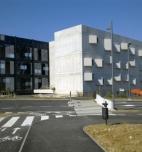

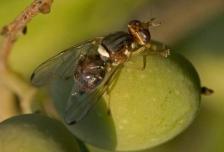
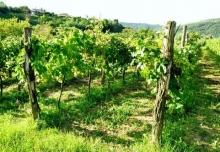
The project includes the following activities:
- Meetings between the project partners for the coordination and monitoring of its activities, the sharing of results and resolution of any critical element,
- Conducting of studies and researches (survey of the cross-border natural areas, guidelines for the management of protected areas and models for the prediction of the development of the olive fruit fly, and the verification of the presence of pollutants). These studies would be conducted through literature researches and field surveys, with the support of experts, and would pursue the objective of consolidating the knowledge base of the cross-border environment and biodiversity,
- Creation of the Cross-border Mediterranean Crop Centre (MCC), of Mediterranean gardens and fields for the biodiversity conservation,
- Construction of technological networks, formed in particular by the control units for the environmental parameters monitoring and for the detection of parasites/pathogens populations that would be produced by the agricultural sector through a more rational use of plant products,
- Predisposition of printed and electronic information materials, information bulletins, newsletters, video and multimedia support,
- Organisation of events in order to present the project results, with the aim of giving them the maximum visibility and application.
The expected results of the project realisation are made of the slowing of the biodiversity loss on one side (with reference to plant species typical of the Mediterranean and traditional crop varieties) and of the improving reduction of the environmental impact by the industry agriculture on the other side, improving environmental conditions of the program. The project will put the basis of a permanent cross-border cooperation in the biodiversity conservation field and the protection of the environment.
ViTo - Integrated Urban Development of the Vital Historic Towns as Regional Centres in South-East Europe
ViTo – Integrated Urban Development of the Vital Historic Towns as Regional Centres in South-East Europe
Programme: South East Europe programme 2007-2013
Duration: 1. 9. 2009 – 31. 8. 2012
Project holder: Municipality Ptuj (Slovenia)
Project leader at ZRS Koper: Milan Bufon, PhD, Principal Research Fellow
Participating institute ZRS Koper: Institute for Social Studies
The project ViTo capitalise on the results of INTERREG IIIB CADSES projects “Hist.Urban“ and “ADHOC”. The experiences of both projects resulted in complementary, to be deepened field of actions to bring forward an integrated development based on the build cultural heritage as location factor and an important part of an integrated revitalisation approach. Small and medium sized historical towns have to make use of their excellent preconditions due to the attractive townscape and the mixed functions to become or sustain a centre for the whole region. They are stabilisers of the settlement structures in SEE, centres of public and private services and places of regional identity. Thus, they are key elements of the implementation of the Lisbon and Gothenburg Agenda goals.
As proclaimed in the Leipzig Charter, it is needed to involve public and private partners, compromise their interests and set up management measures for the implementation of an integrated urban development.
Therefore ViTo focuses on promoting transnational urban governance structures and implementing pilot measures to have visible results that improve the attractiveness of towns to foster their economic development in SEE.
For that purpose the project is structured by the work packages: 1.Start- ups and analysis, 2.Integrated planning process and approaches, 3.Management of revitalisation and 4. Transnational governance approaches.
Partners establishing cross-sectoral management teams to implement local project measures to demonstrate the transnational results of ViTo. Target groups will be identified and transnational strategies developed how to involve them in decision-making and implementation process. Methods to foster private investments in revitalisation will be developed and implemented. Common visions on integrated urban development will lead to concepts and actions plans based on previous transnational results.
Partner organisations:
- Municipality Ptuj (Slovenia)
- Univerza na Primorskem, Znanstveno-raziskovalno središče (Slovenia)
- Municipiul Arad (Romania)
- City of Banska Stiavnica (Slovakia)
- Magyar Tudományos Akadémia, Regionális Kutatások Központja (Hungary)
- Stadt Graz – Stadtplanungsamt (Austria)
- Municipiul Oradea (Romania)
- SVIM – Sviluppo Marche S.p.A. (Italy)
- Comune di Teramo (Italy)
- Chamber of Commerce & Industry of Xanthi (Greece)
- Asociatia Obsteasca “Plai Resurse” (Romania)
MERIDIUM - Multilingualism in Europe as a Resource for Immigration
MERIDIUM – Multilingualism in Europe as a Resource for Immigration – Dialogue Initiative among the Universities of the Mediterranean
Programme: Lifelong Learning project: Comenius, Grunding and languages
Duration: 1. 1. 2009 – 31. 12. 2011
Project holder: Universita per stranieri Perugia (Italia)
Project leader at ZRS Koper: Lucija Čok, PhD, Principal Research Fellow
Participating institute ZRS Koper: Institute for Linguistic Studies
MERIDIUM – Multilateral international European lifelong learning project combines the knowledge and information technologies of Università per stranieri Perugia (Italy), two Romanian universities: Universitate Babes-Bolyai Cluj-Napoca and Universitate Transilvania din Brasov, Portugal university Universitate Babes-Bolyai Cluj-Napoca, Spanish universities Faculdade de Ciências Sociais e Humanas da Universidade Nova de Lisboa and Universidad de Salamanca, the University of Malta and the University of Primorska. The aim of the project was to analyse and evaluate the policies of Mediterranean countries related to emigrants, their inclusion and implementation of language and education rights of individual immigrant groups in new environments and adopting the wider environment of cultural diversity. By researching social phenomena, legislation and the operations of education and culture institutions of individual countries, partner universities have found answers and solutions and promoted them within the Study and Documentation Centre on Multilingualism in Mediterranean Europe that has been established at the project conclusion. The Slovenian research pattern included 5th grade pupils (total: 156) from four primary schools and their parents, all of whom live in the Slovenian Istria. The project results have been published as a monograph: The Slovenian Istria between a Policy of Coexistence and the Immigration Issue (Annales, 2012).
